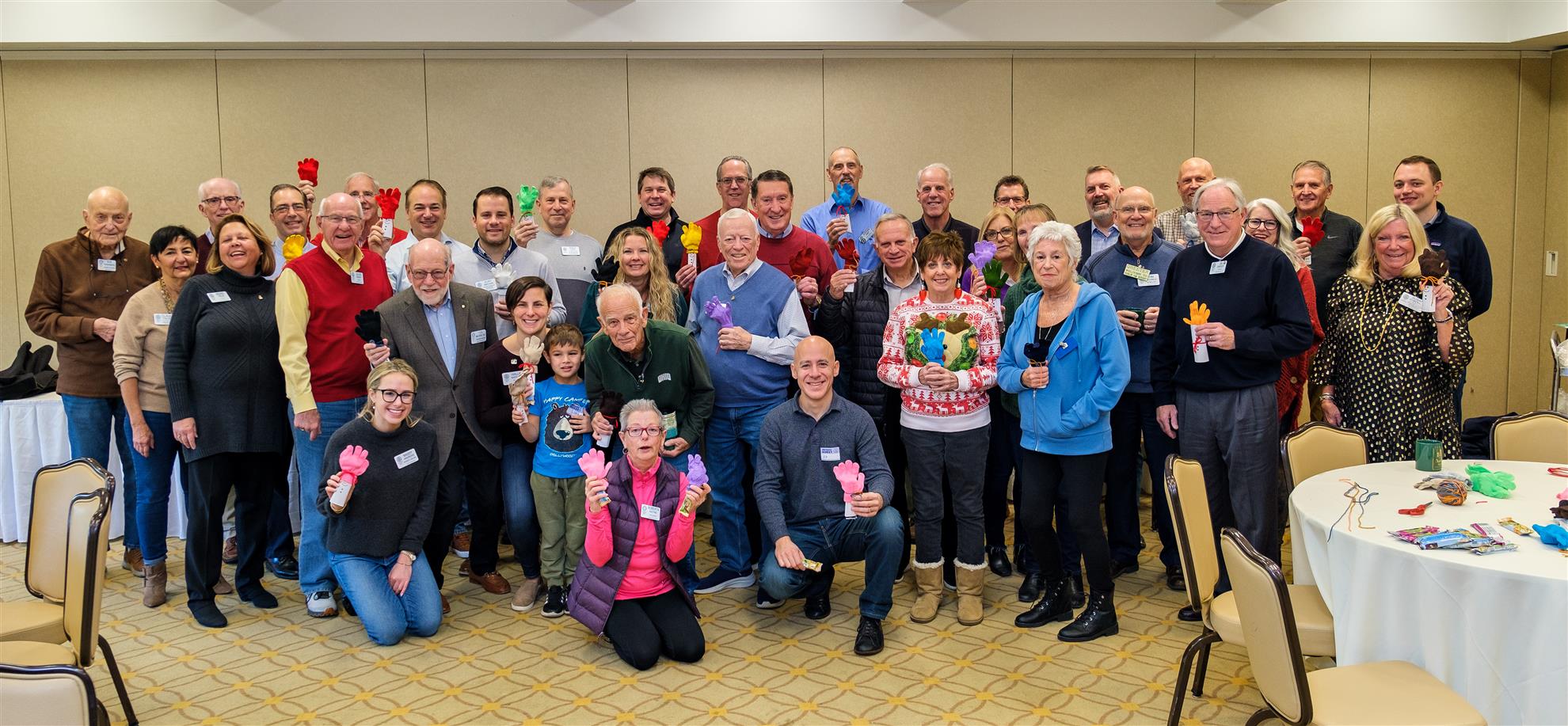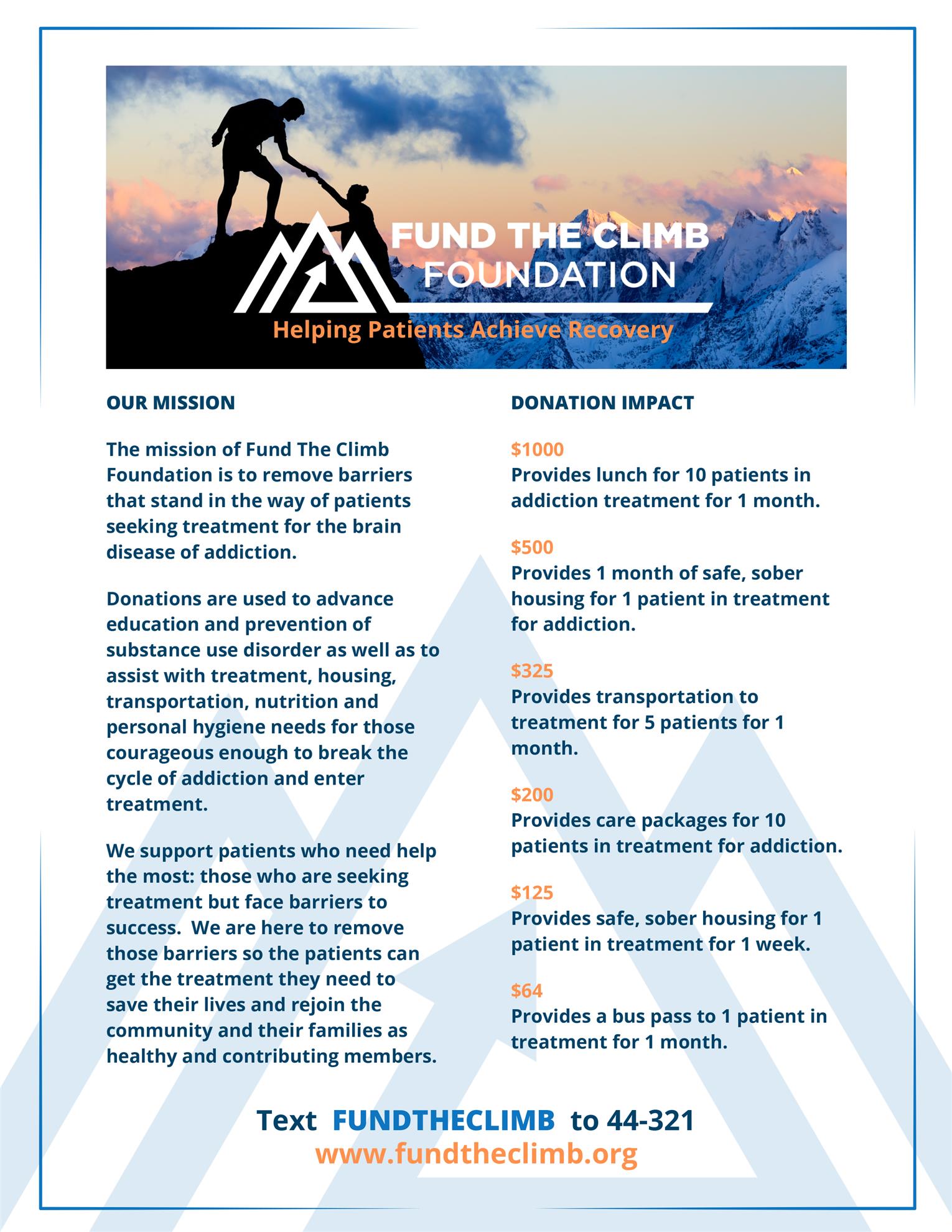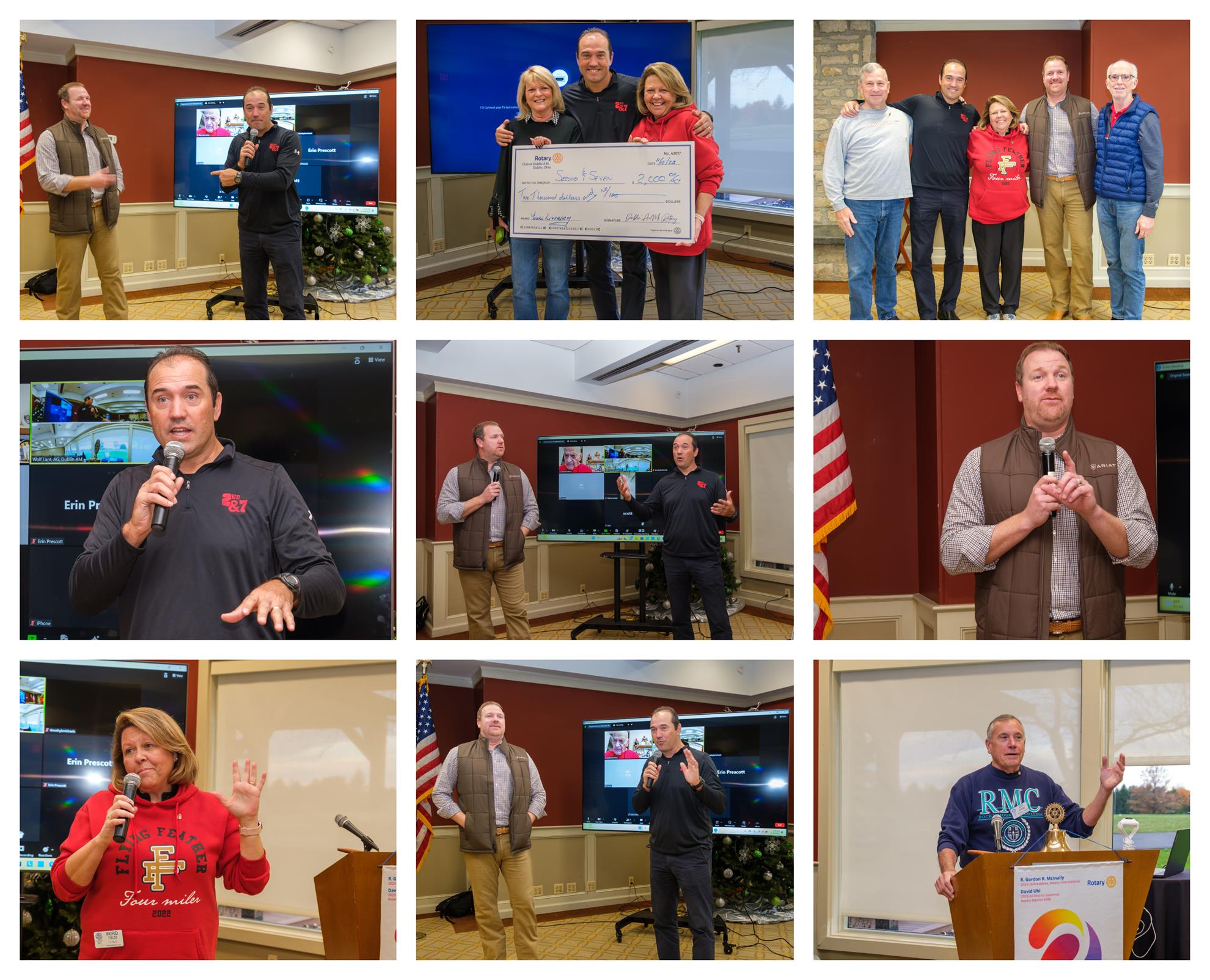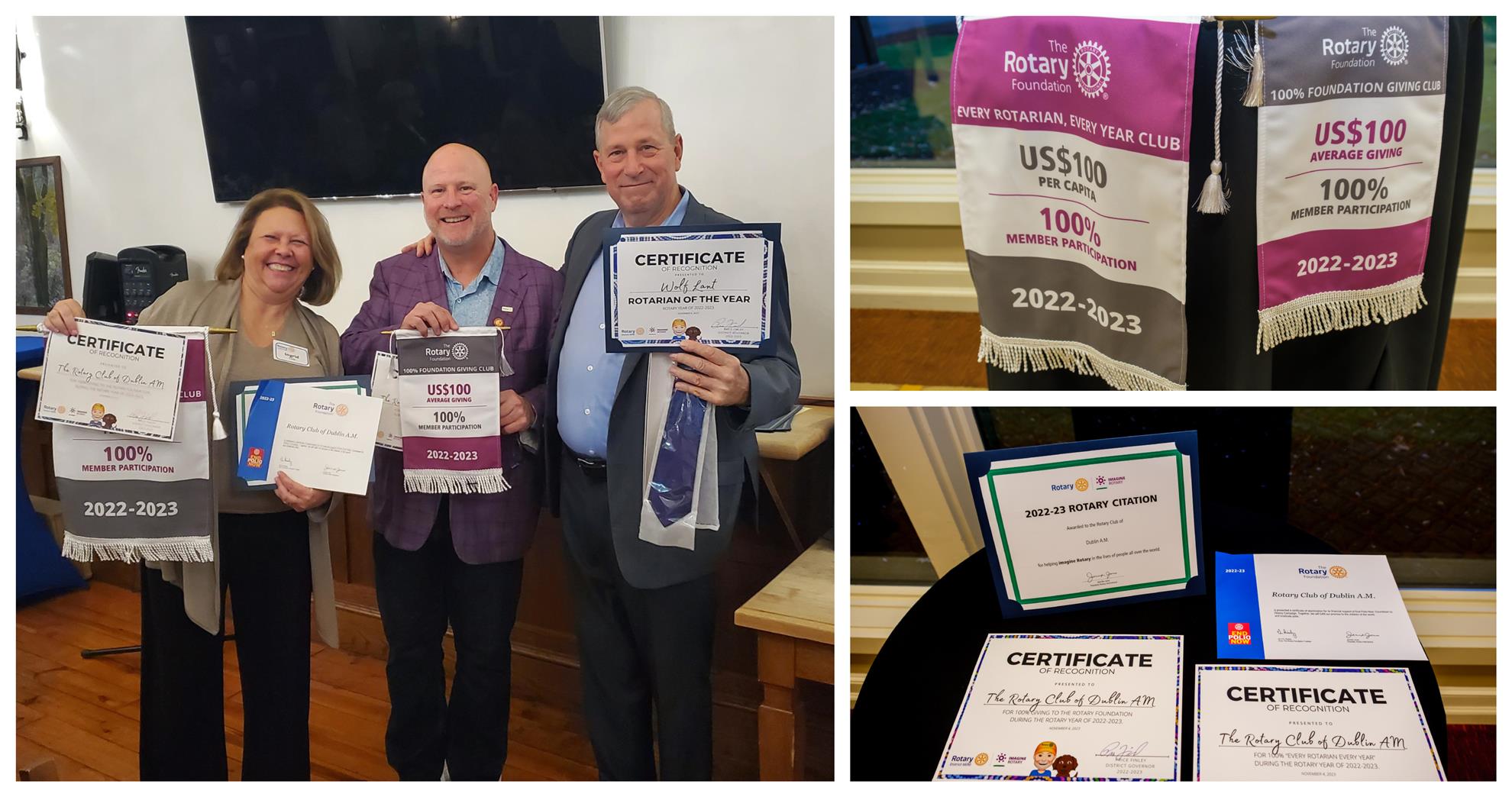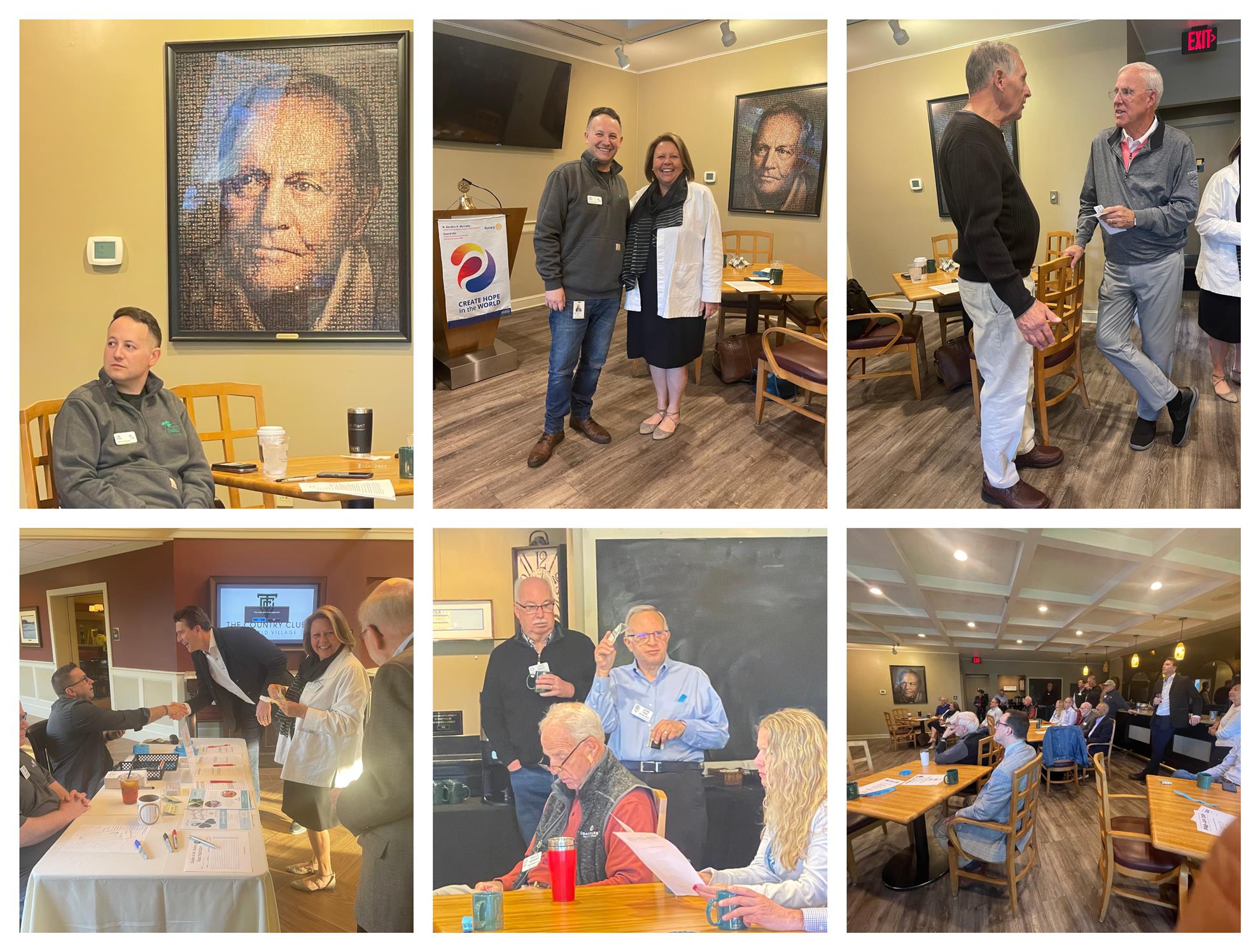 This meeting featured speaker J.M. Rayburn discussing the Dublin City Division of Transportation & Mobility.
This meeting featured speaker J.M. Rayburn discussing the Dublin City Division of Transportation & Mobility.-
Board Meeting
Dublin Chamber of CommerceMay 01, 2024
5:30 p.m. - 7:00 p.m. -
Kentucky Derby Party
The Yoder ResidenceMay 04, 2024
5:30 p.m. – 9:00 p.m. -
Board Meeting
Dublin Chamber of CommerceJun. 05, 2024
5:30 p.m. - 7:00 p.m.
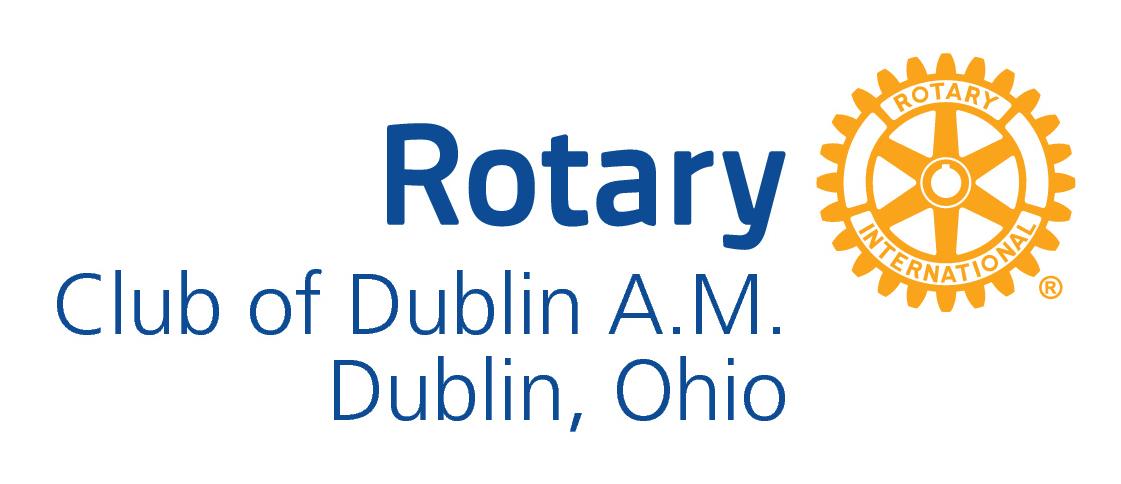

 This meeting featured speaker J.M. Rayburn discussing the Dublin City Division of Transportation & Mobility.
This meeting featured speaker J.M. Rayburn discussing the Dublin City Division of Transportation & Mobility.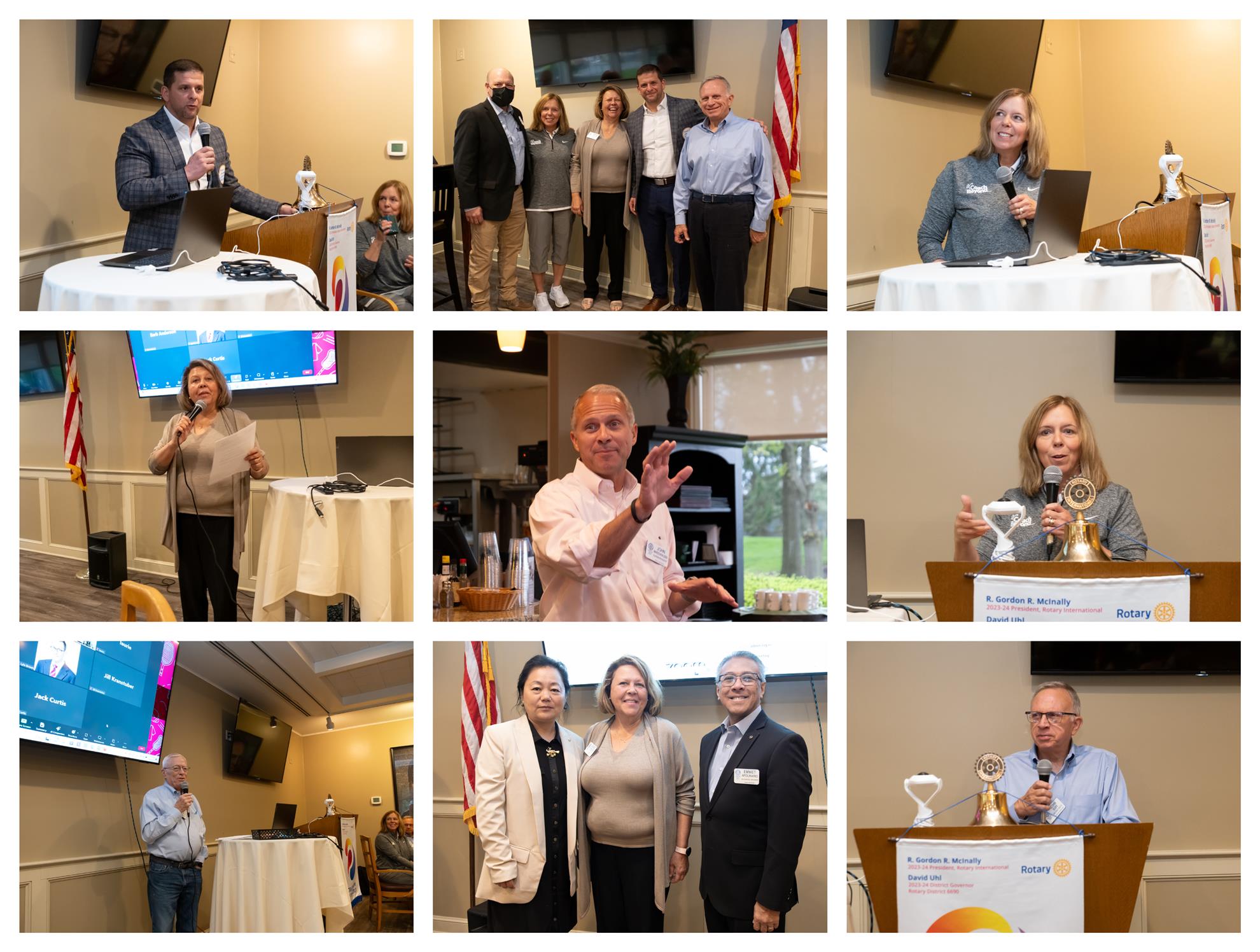 This meeting featured speakers Dawn Anderson-Butcher, Tyler Wolfe, and Jim Sauter with the OSU LiFESports Initiative.
This meeting featured speakers Dawn Anderson-Butcher, Tyler Wolfe, and Jim Sauter with the OSU LiFESports Initiative. 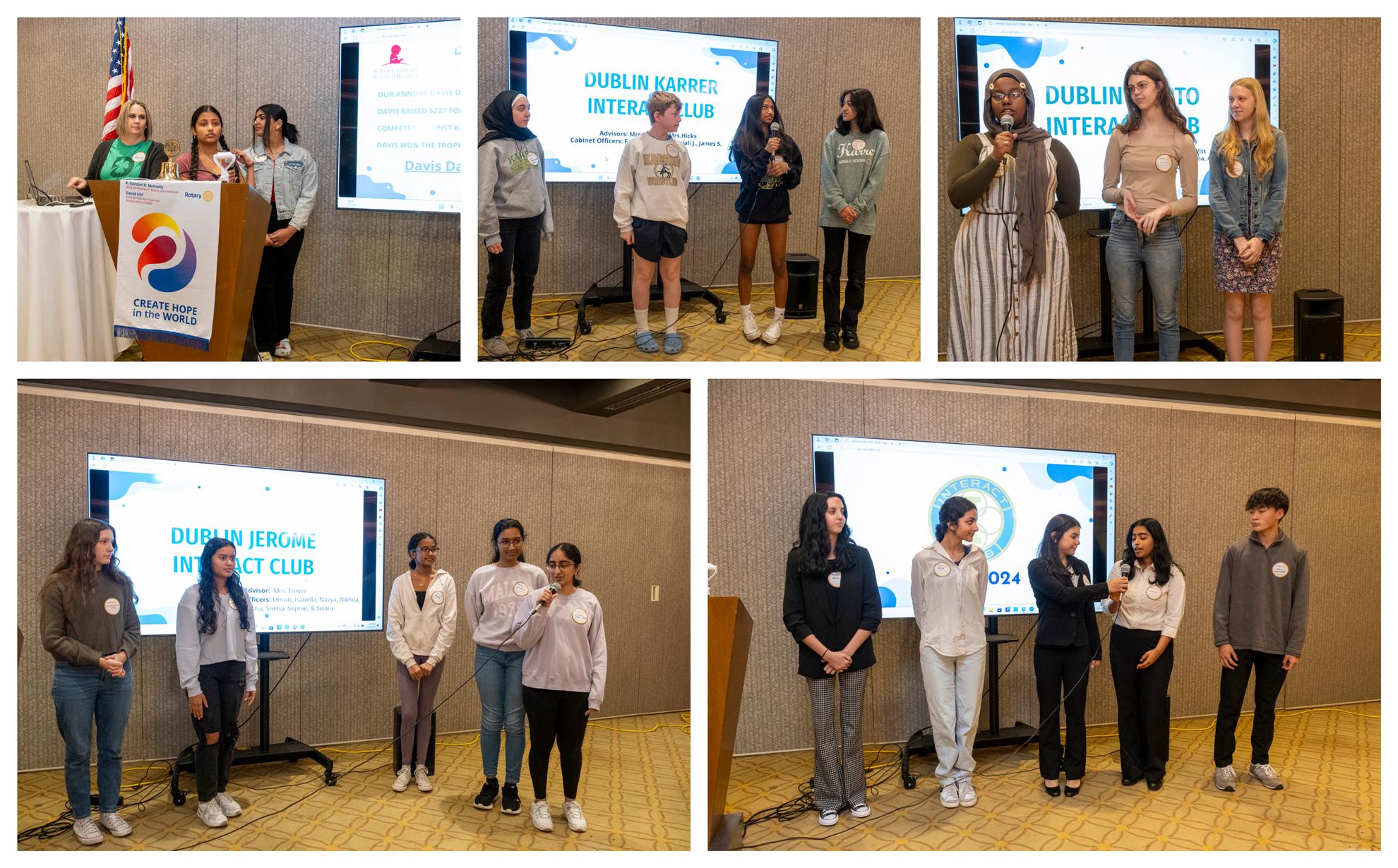
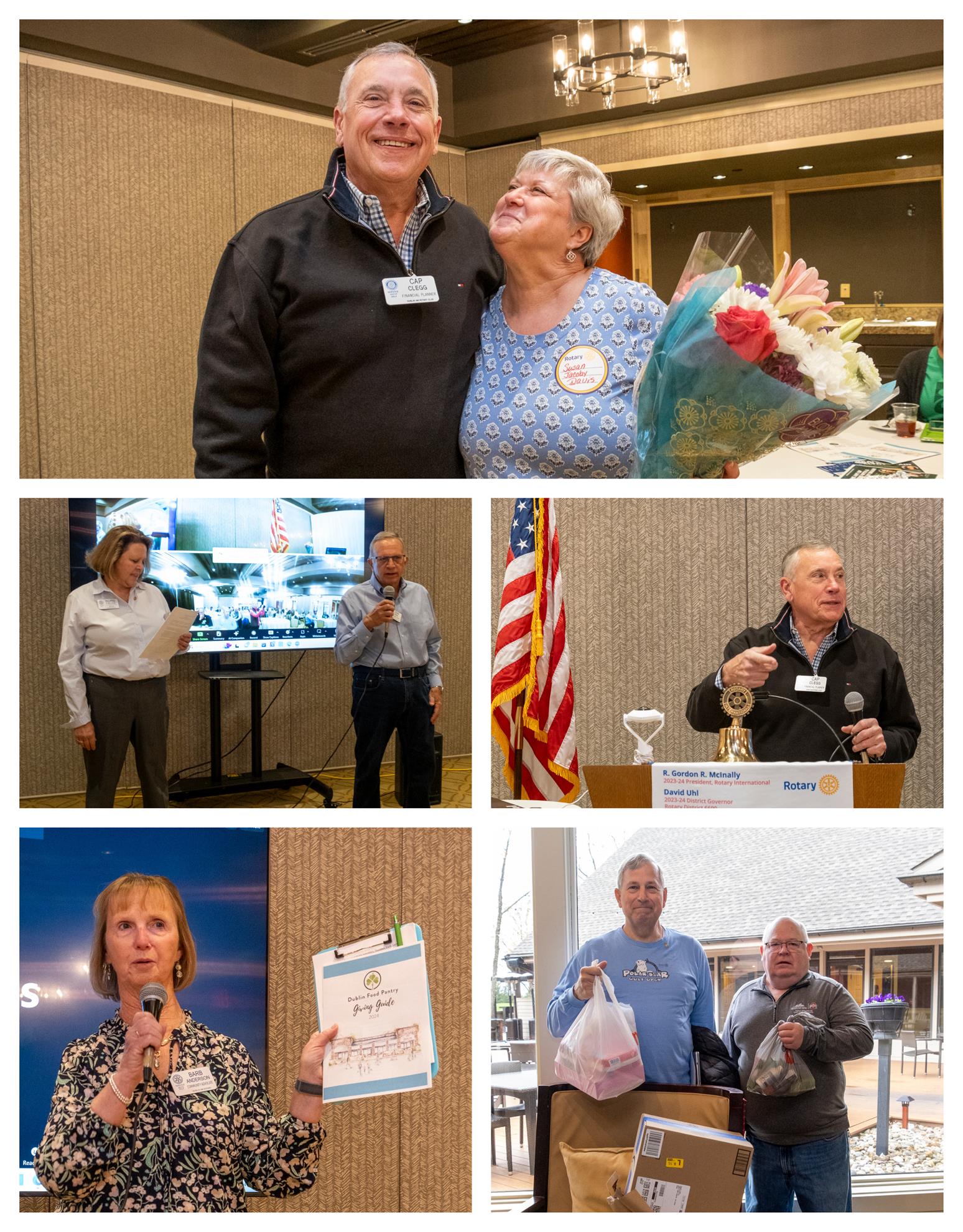
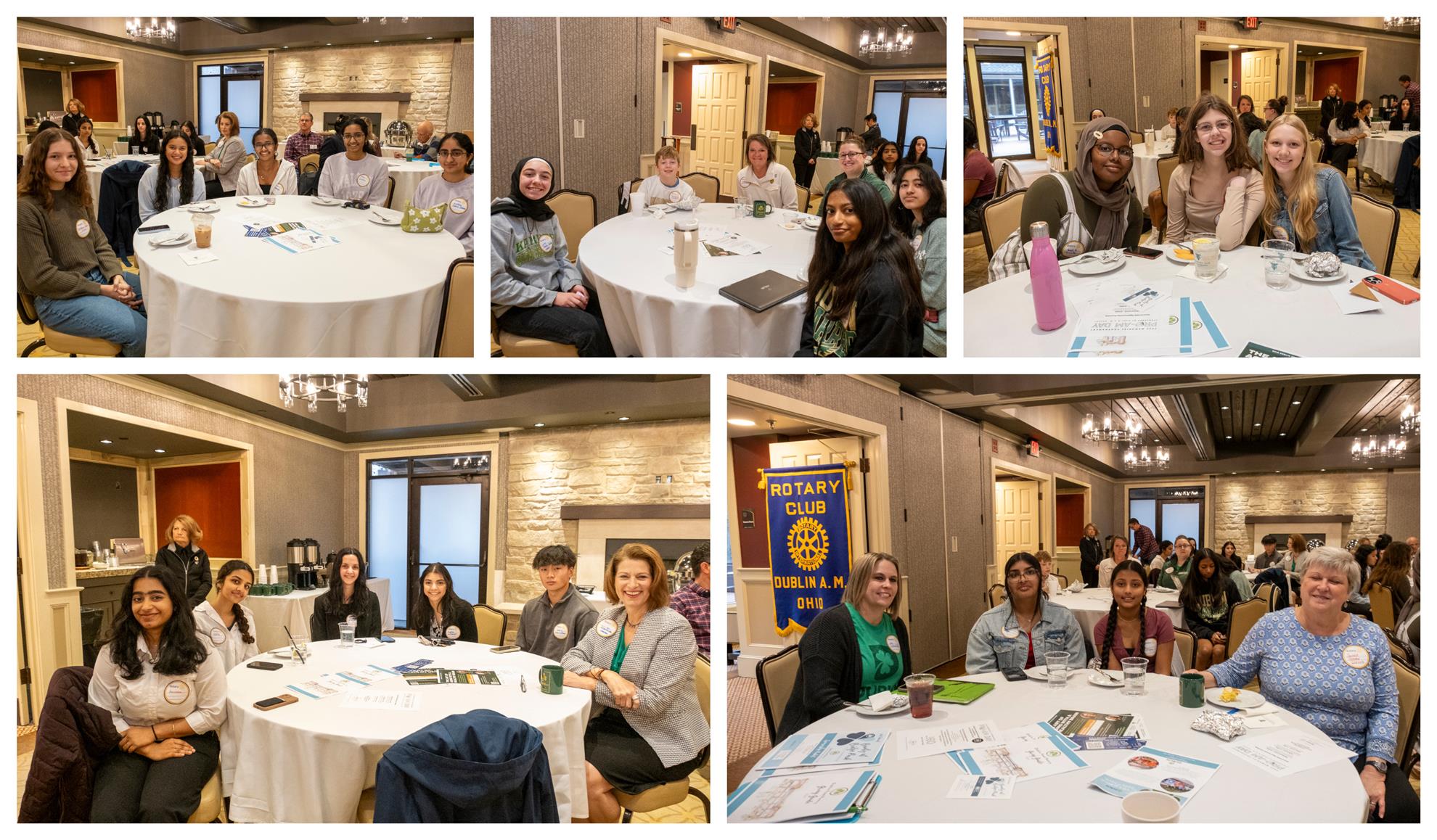
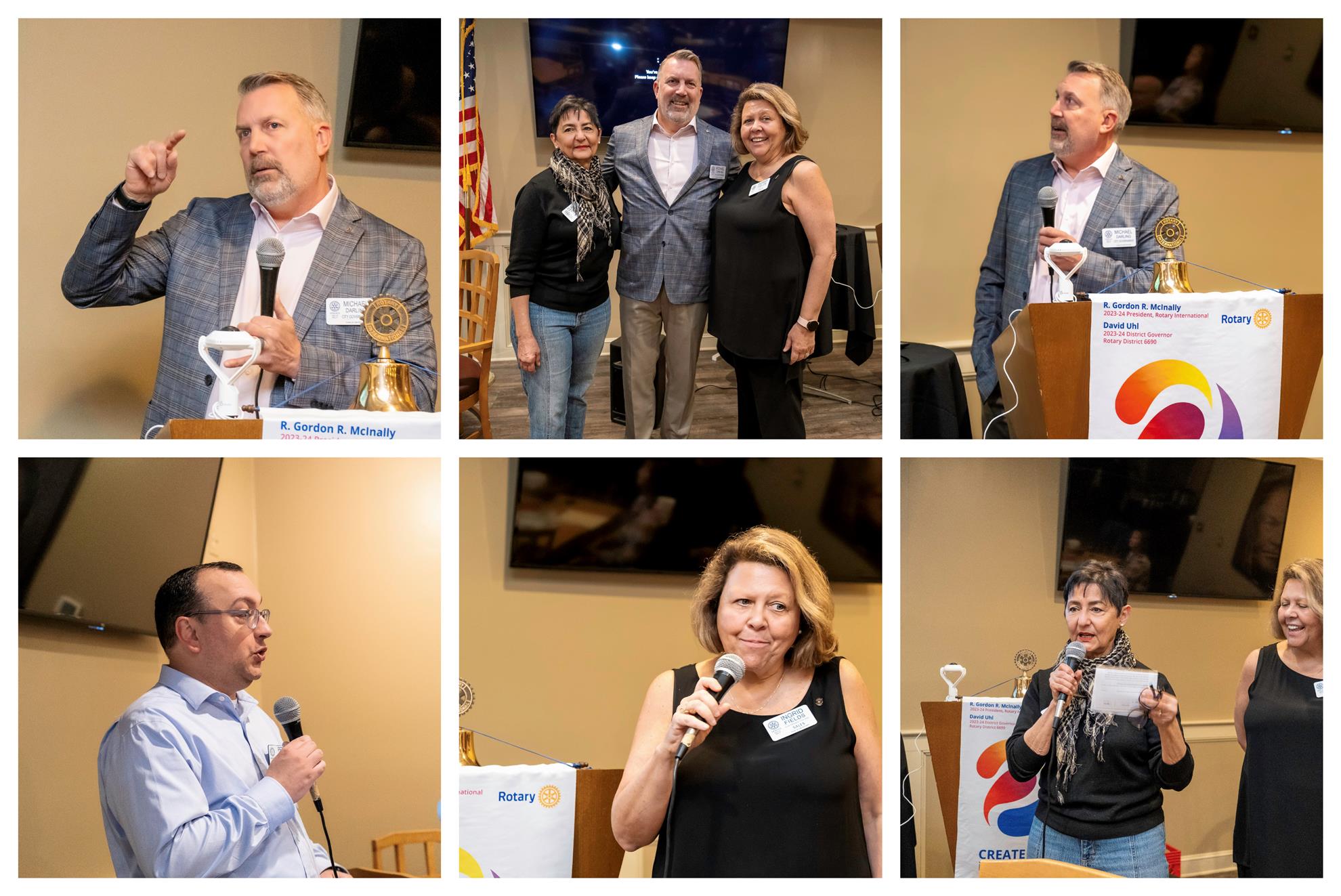
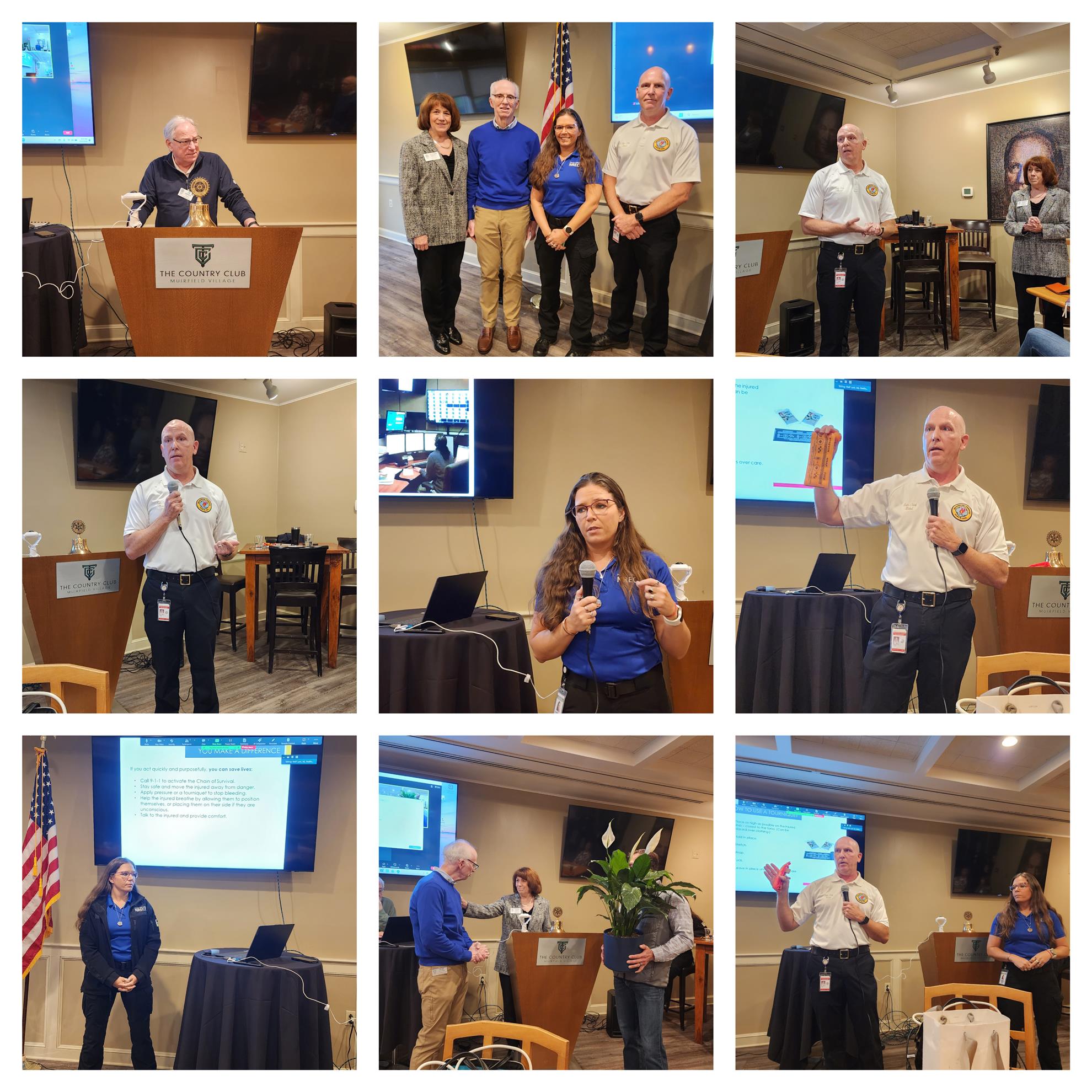 UNTIL HELP ARRIVES: If you are ever involved in or witness a traumatic accident, will you know what to do until first responders arrive? Would you be prepared to help save someone’s life? This meeting walked us through each step: how to recognize that there is a problem, how to assess the surroundings so you can act safely, what information is most important to share on your 911 call, and the care you can administer until law enforcement and or fire/EMS arrive. Washington Township Fire Department Battalion Chief Mike Riebel and emergency dispatcher (Northwest Regional Emergency Communications Center) Stephanie Skipworth were our presenters.
UNTIL HELP ARRIVES: If you are ever involved in or witness a traumatic accident, will you know what to do until first responders arrive? Would you be prepared to help save someone’s life? This meeting walked us through each step: how to recognize that there is a problem, how to assess the surroundings so you can act safely, what information is most important to share on your 911 call, and the care you can administer until law enforcement and or fire/EMS arrive. Washington Township Fire Department Battalion Chief Mike Riebel and emergency dispatcher (Northwest Regional Emergency Communications Center) Stephanie Skipworth were our presenters.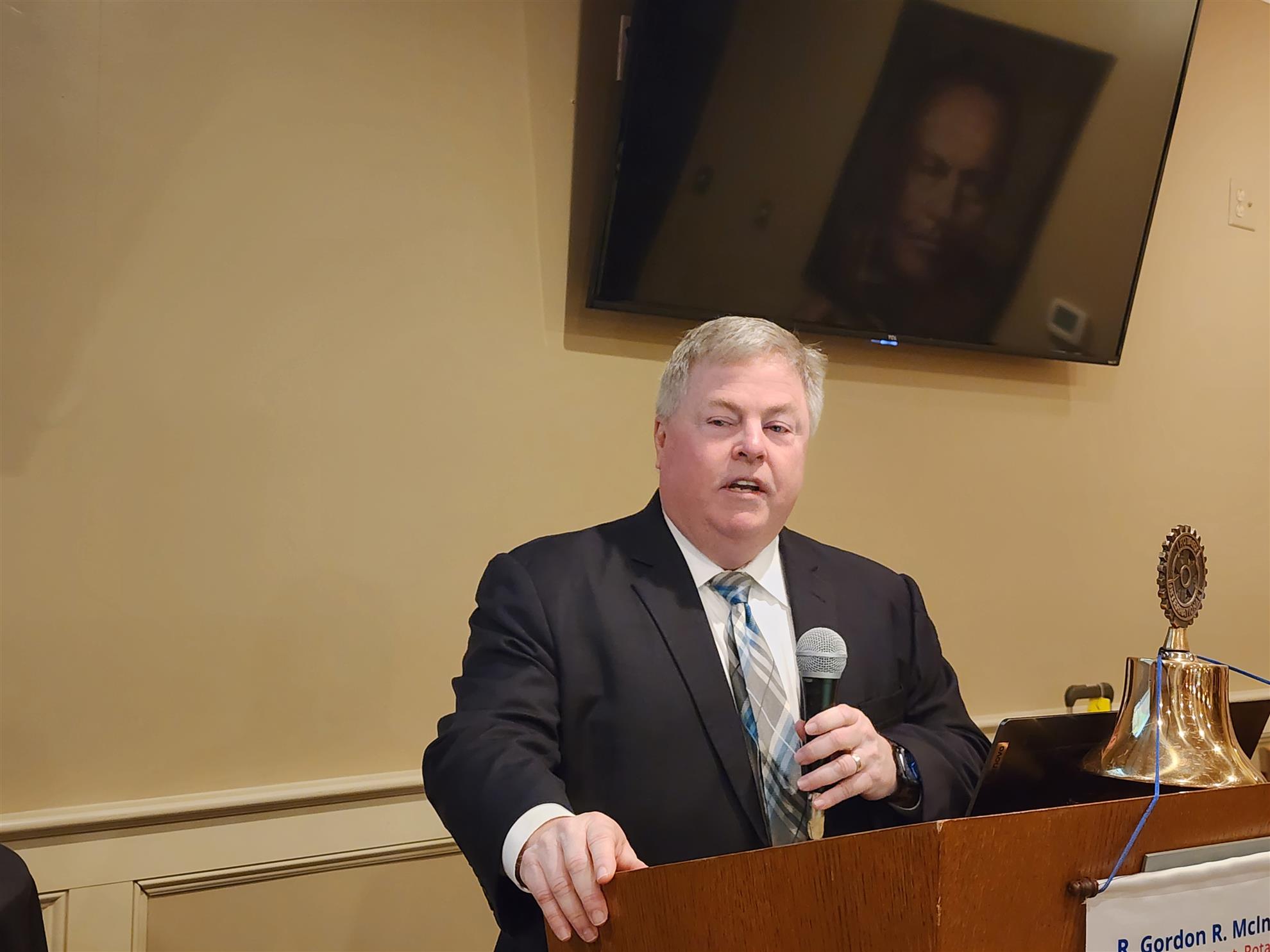 We heard from John Diehl, senior vice president of applied insights for Hartford Funds. He educates financial advisors and their clients about current and emerging opportunities in the financial services marketplace. These opportunities range from retirement planning, investment planning and charitable planning, to anticipating and preparing for demographic and lifestyle changes.
We heard from John Diehl, senior vice president of applied insights for Hartford Funds. He educates financial advisors and their clients about current and emerging opportunities in the financial services marketplace. These opportunities range from retirement planning, investment planning and charitable planning, to anticipating and preparing for demographic and lifestyle changes.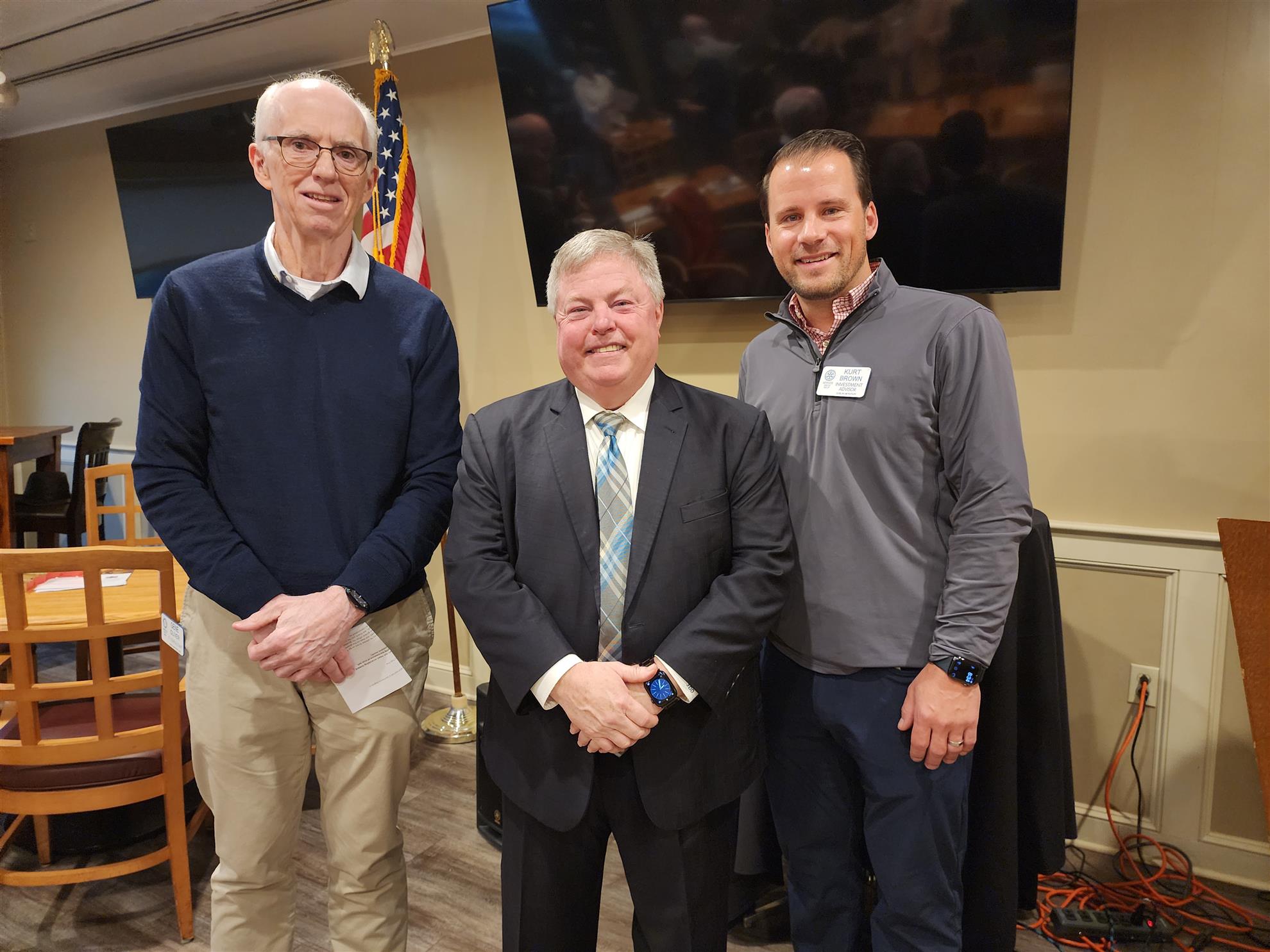

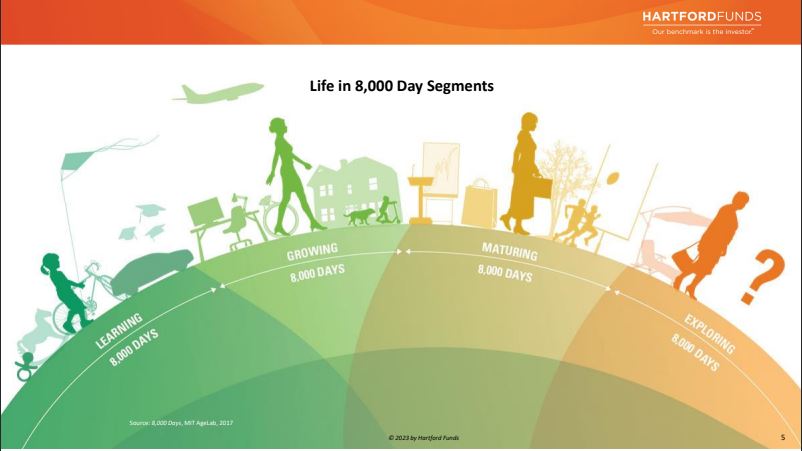
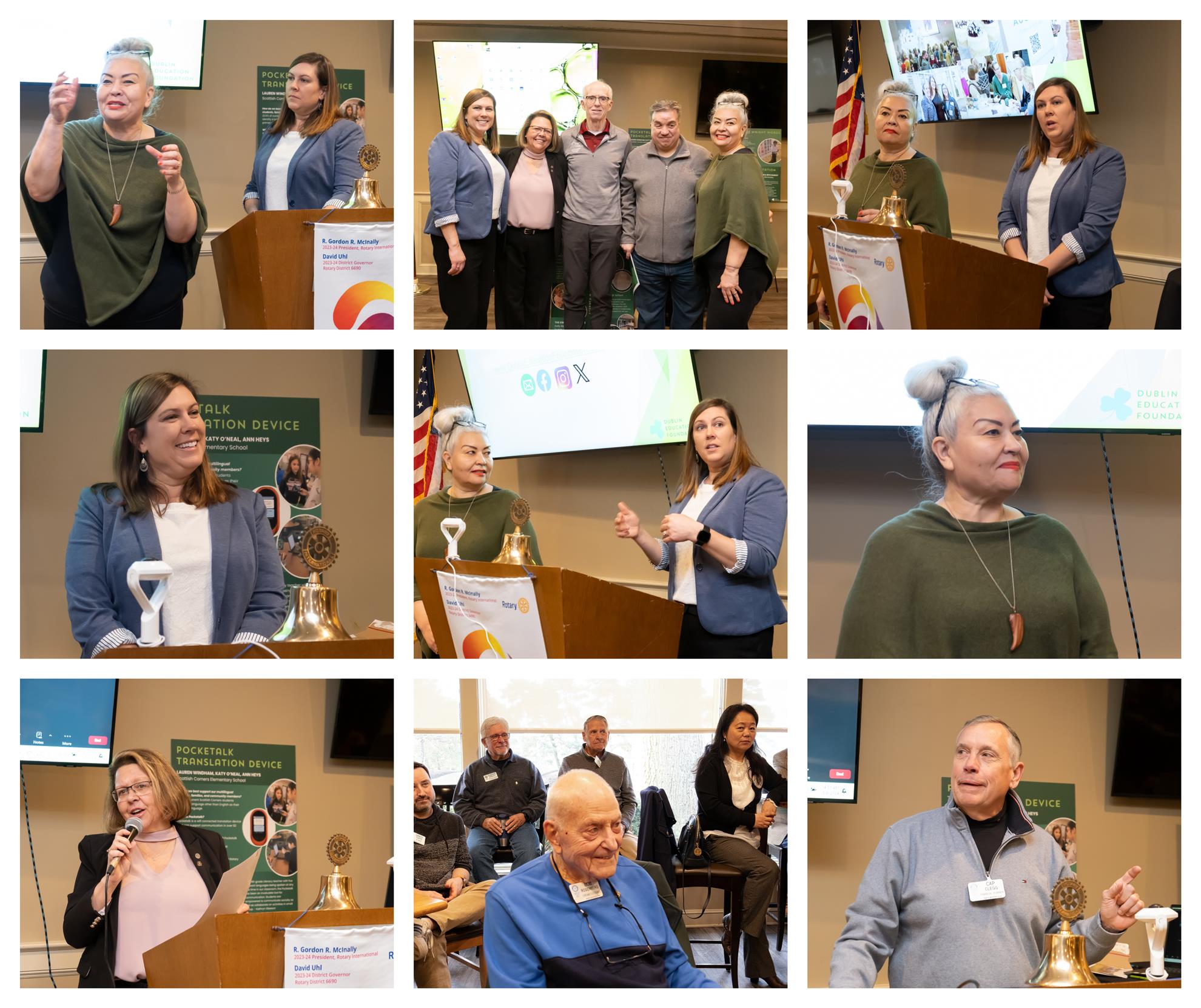
Our guests were Deb Papesh and Melissa Bogner who are on the board of the Dublin Education Foundation.
Deb holds an M.Ed in Early Childhood Education with a focus on Family Literacy. She was an adjunct professor at the Oklahoma City University and co-developed FILM: the Family Intergenerational Model which was approved as one of four national family literacy models in the 90’s. She currently also serves on the board for the Dublin Food Pantry. Deb lives in Dublin with husband Brian and has raised two daughters who graduated from DCS. Dr. Ashley Papesh Place of Legacy Family Dental and Hopewell Elementary teacher, Katie Papesh. Deb’s motto: Life is a Networking event… celebrate the simple and share the good!
Melissa is a graduate of Ohio University and spent 8 years in finance at Charles Schwab before deciding to stay home to care for her young children and become a community volunteer, advocate, and connector. Expanding her involvement and leadership from her children’s elementary PTO Board, Melissa became a member of the Dublin Education Foundation Board in 2020 giving her the opportunity to serve the entire DCS district. She enjoys boating and snow skiing with her husband Joe and three children, Taylor, Carter, and Charlie, and hosting spontaneous backyard gatherings with extended family, friends, and neighbors.
We also recognized Bob Rosenberg for his herculean efforts to obtain gift cards for the Polar Bear auction! Thank you Bob!! (photo on left bottom center).
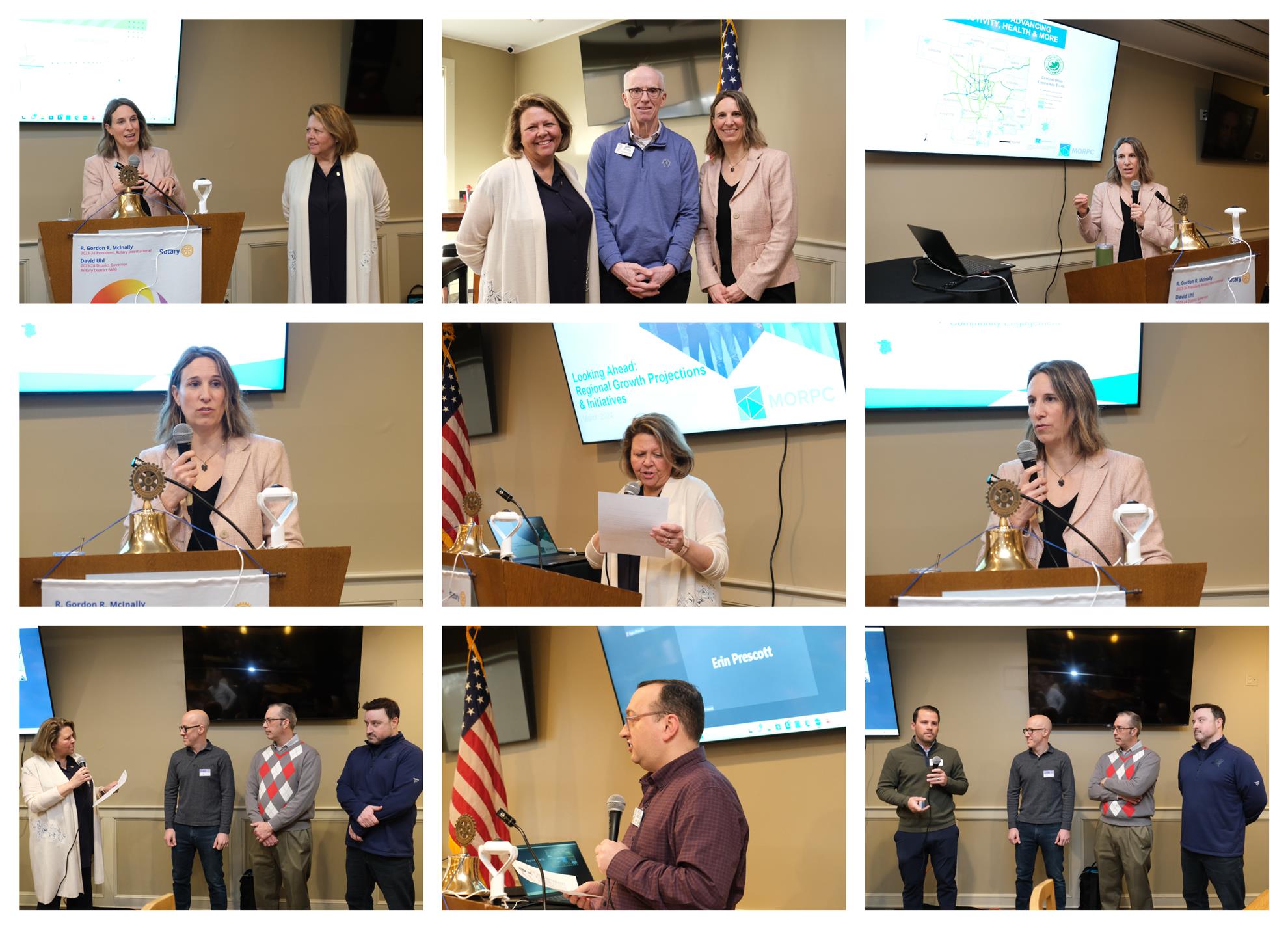 Kerstin Carr, PhD shared updates from projects of the Mid-Ohio Regional Planning Commission.
Kerstin Carr, PhD shared updates from projects of the Mid-Ohio Regional Planning Commission.
We were pleased to hear from Jenny Stotts an inspiring message about Rotary Membership. Jenny is one of the most energetic leaders in our district and will be sure to reignite the spark in all of us to share the message of Rotary with prospective members.
Jenny R. Stotts, MS, LSW volunteers as an Assistant Rotary Coordinator in Rotary International Zone 30 and as the Public Image Chair in her local club. She is a major donor, a benefactor, a member of the Paul Harris Society, the Polio Plus Society and the Bequest Society. Each member of her family, including her two children, are Paul Harris Fellows. She is a charter member and past president of the Rotary Club of Athens Sunrise, a past Assistant Governor, and previously served as the Membership Chair in District 6690, creating several resources and toolkits that are now used worldwide. In 2023, she spearheaded an effort to train Rotary members across southern
Ohio in Mental Health First Aid. Her favorite Rotary activities include RYLA and Paddle for Polio Plus, an annual event featuring kayaks.
Professionally, Stotts was appointed in 2022 by Governor Mike DeWine to serve as Ohio’s first Youth Ombudsman. As Ohio’s Youth Ombudsman, she is responsible for investigating and resolving complaints and concerns submitted by foster youth, including suspected violations of Ohio’s foster youth bill of rights. She previously served for 9 years as the Executive Director of the Athens CASA/GAL Program and the Regional Coordinator of Southeast Ohio CASA (Court Appointed Special Advocates), supporting the development of three new court-based child advocacy programs in Appalachia. She developed a hybrid volunteer training program that has been scaled and implemented nationwide. Prior to that she worked as a children services investigator and worked in higher education at Ohio University’s Department of Social Work. She is a licensed social worker, a trauma specialist, and a trained forensic interviewer. Notably, she has taught courses on evidence-based communication, conflict resolution, and trauma-informed care. She holds a black belt in Lean Six Sigma and is a graduate of Leading in Appalachia. She has devoted her career to serving foster children. This work is near to her heart as she was adopted from the Ohio child welfare system and grew up in a foster home. She and her husband, also a Rotarian, continued the tradition, building their family through foster care adoption, as well. She is an outspoken advocate for youth voice and youth rights.
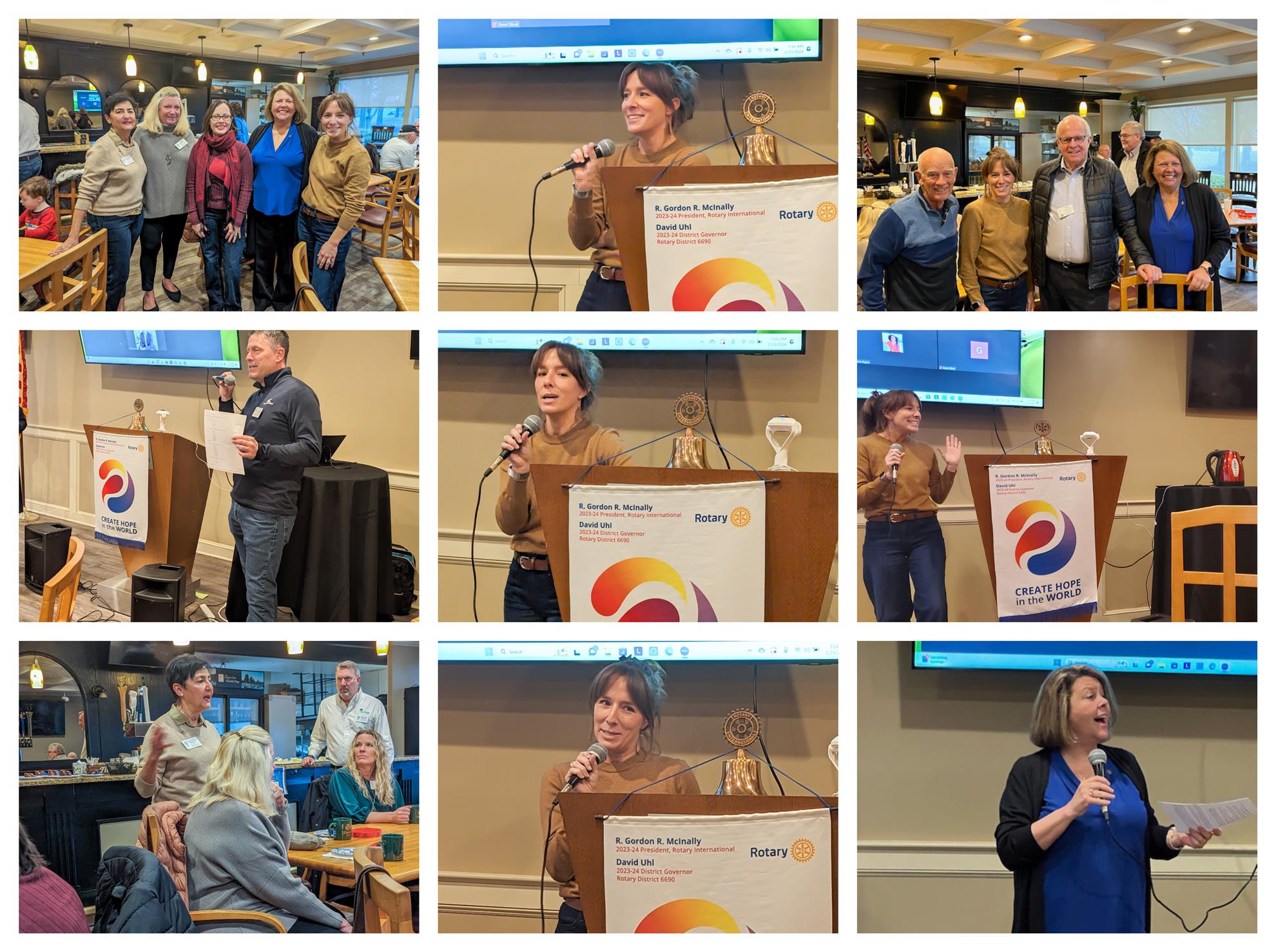
This meeting time was dedicated to assembling 100 bags of toiletry items for victims of human trafficking to be distributed by the Salvation Army. Thanks to Claudia Trusty for organizing this project to show care for some of the most vulnerable members of our community.
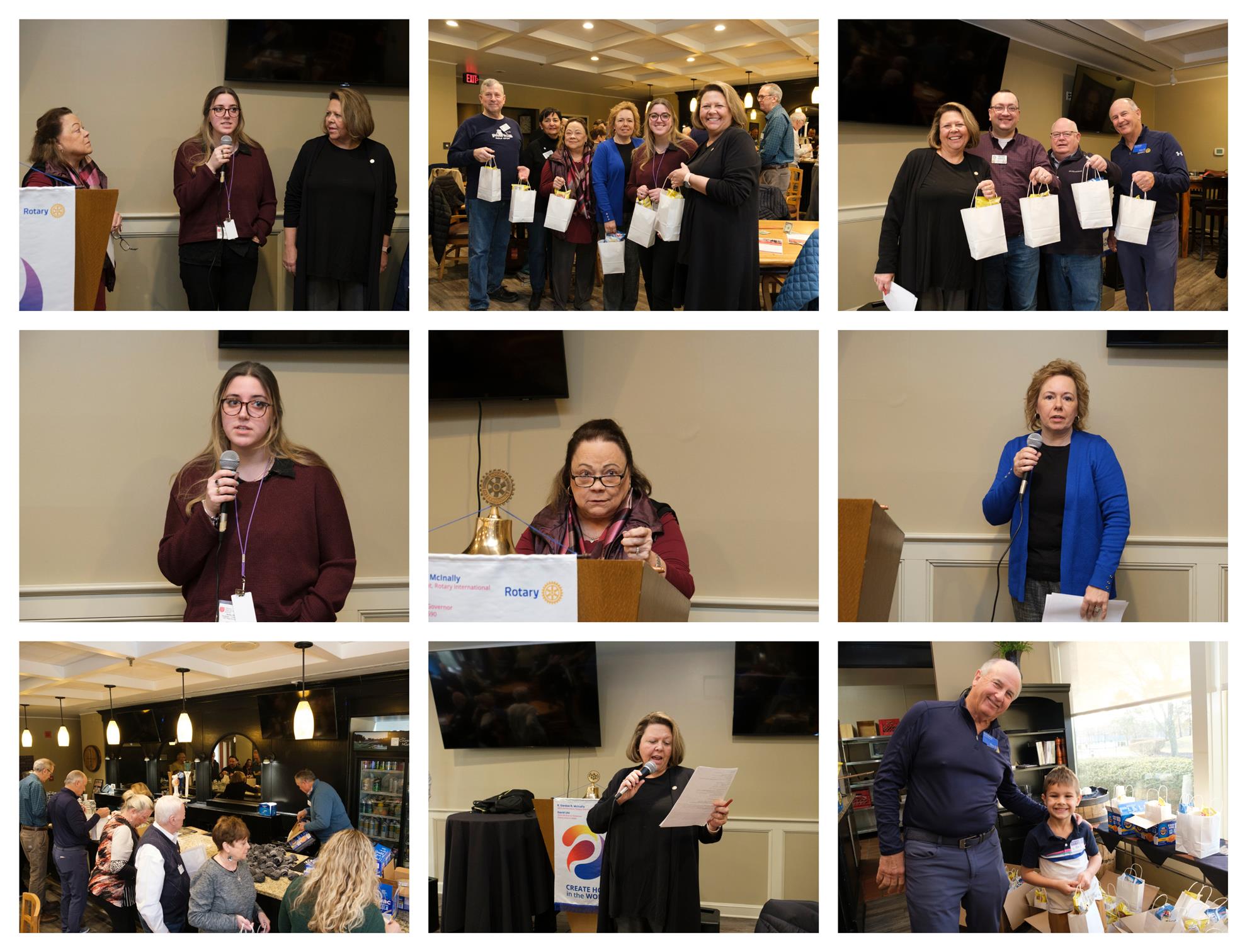
***********************************************************************
This meeting featured Dr. Sarah K. Douglas with an update on Ukraine.
Dr. Sarah K Douglas obtained her MA from the Ohio State University in 2010 and her Ph.D. from OSU in 2015. Her specialties include military history, disease history, medieval European history, and world history. Dr. Douglas has served as a Fellow at the West Point Summer Seminar in Military History; she has received eight Ohio State College of Arts and Sciences and Department of History Awards/Fellowships; two research fellowships from the Mershon Center for International Security Studies; and she has been awarded four dissertation fellowships from the Lynde and Harry Bradley Foundation of Milwaukee. She has four peer-reviewed articles, two editor-reviewed articles, and one edited volume now in print, while her dissertation manuscript is going through the editorial process in preparation for publication. She is currently a Senior Lecturer at The Ohio State University, where she teaches various undergraduate courses covering topics from the Crusades to the Vietnam War. She also works as a Senior Lecturer at Norwich University, where she teaches graduate courses and advises Masters theses in both military history and global history.
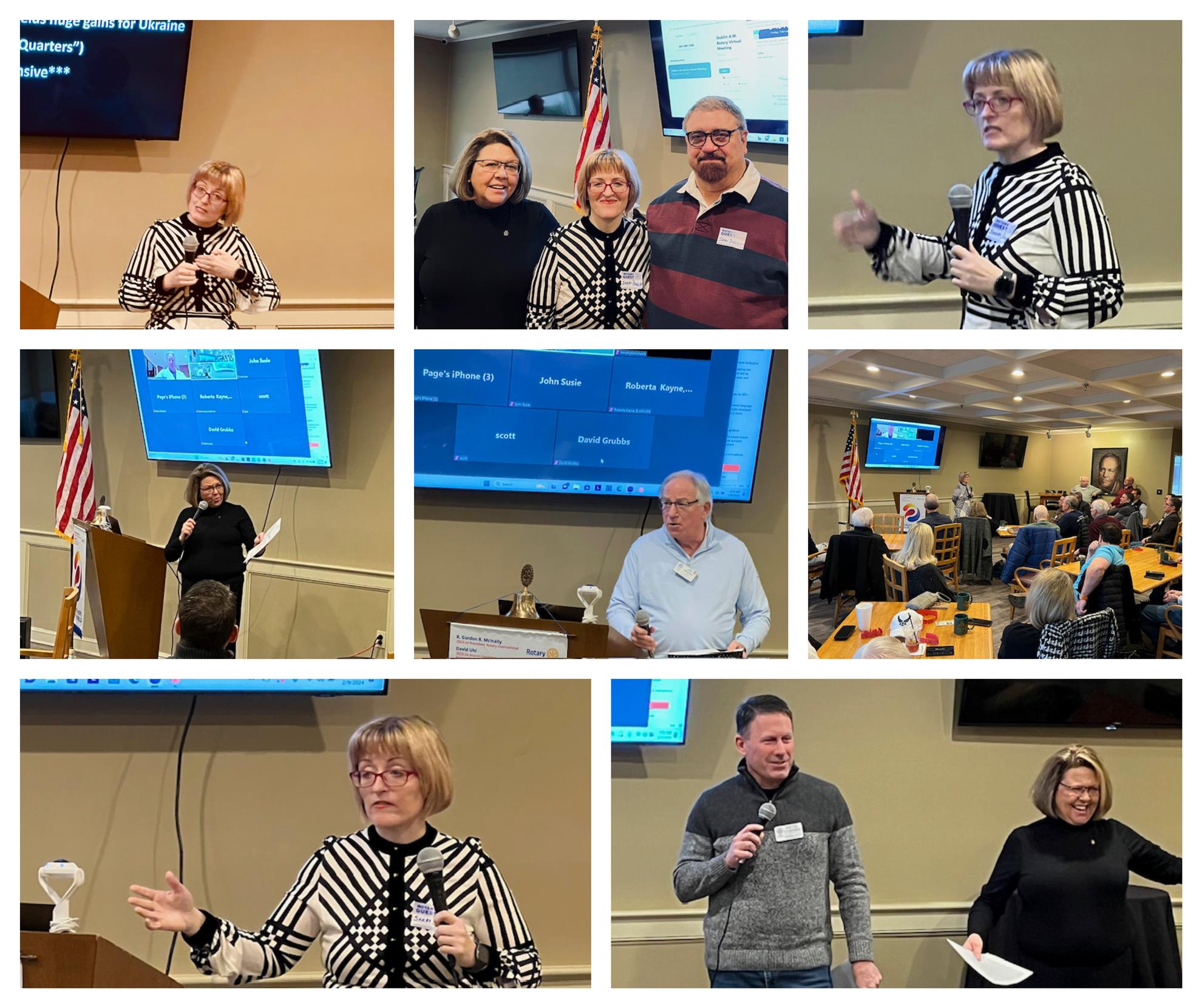
Our meeting speaker was Diane Doucette is President and COO of Mount Carmel New Albany, Mount Carmel St. Ann’s and Mount Carmel Lewis Center. With more than 30 years of experience in health care, she has been with Mount Carmel New Albany since its inception in December 2003. Thanks to Diane’s guidance and leadership, Mount Carmel New Albany (MCNA) is an award-winning, nationally recognized musculoskeletal surgical hospital built on providing an exceptional patient and family experience with clinical outcomes which are unparalleled. In addition to MCNA, she assumed the presidency of Mount Carmel St. Ann’s (MCSA) in 2020, a full-service inpatient hospital known for its Women’s Health Center. Today, she is the Executive Sponsor for the Mount Carmel Dublin campus projected to open in 2025.
Prior to becoming president of Mount Carmel New Albany in 2015, Diane served in several leadership positions at various health systems across administration and clinical services. Diane was a principal in a consulting firm for 20 years across the country as a subject matter expert in periop efficiencies, patient experience and architectural design of hospitals. She is a member of the Association of Operating Room Nurses, the American Nurses Association, and the National Association of Orthopaedic Nurses. She currently serves as a board member for the Mount Carmel Rehabilitation Hospital and Easton Surgery Center.
Diane received her nursing education from Canadore College in Canada, her bachelor's degree in business administration from Otterbein University and her master's degree in business administration from Franklin University.

************************************************************************************************
Sara is Senior Vice President of Sales at NetJets. During her 19 years at NetJets, she has held a variety of roles in customer service and sales, now focusing on customer accounts and new business development in Ohio and Michigan.
Halle is the Senior Project Manager on the Global 5 Senses Team, a unique team dedicated to curating the onboard experience for Owners and creating that ONLY NetJets experience. Halle has over a decade of project management experience and is a former luxury hotelier and Certified Meeting Professional.


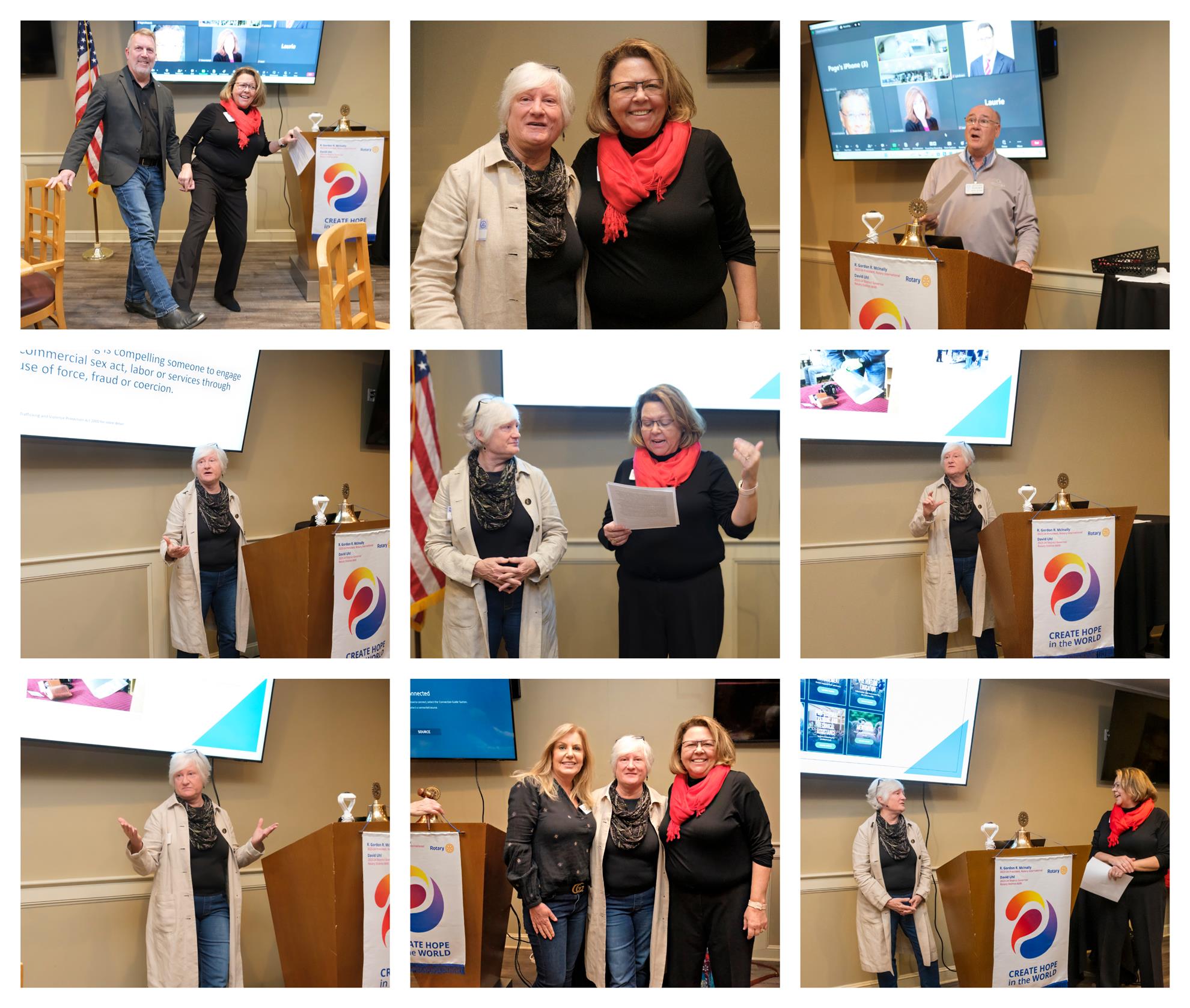 Dr. Christi Scott Bartman has been involved in anti-human trafficking efforts in Ohio for over a decade. She is the founder of Eyes Up Appalachia, an anti-human trafficking initiative focusing on the Appalachian Counties of Ohio. She operates as a compassionate catalyst to push for better ways to address human trafficking and the vulnerabilities that underlie it. In 2021 she received The Social Justice Leader Award from the University of Toledo's Human Trafficking and Social Justice Institute, was a semi-finalist in the Everyday Heroes of Central Ohio and was chosen as one of the inaugural fellows for the Foundation for Appalachian Ohioan 2022. In 2023 she was awarded the Everyday Ohio Heroes Award for the Southeast Region by the Ohio Children's Trust Fund. She served as the Co-Chair of the Ohio Attorney General's Trafficking Commission Research/Gap and Data Analysis Subcommittee until January 2022 and continues to serve on that subcommittee. Christi is an Air Force Veteran.
Dr. Christi Scott Bartman has been involved in anti-human trafficking efforts in Ohio for over a decade. She is the founder of Eyes Up Appalachia, an anti-human trafficking initiative focusing on the Appalachian Counties of Ohio. She operates as a compassionate catalyst to push for better ways to address human trafficking and the vulnerabilities that underlie it. In 2021 she received The Social Justice Leader Award from the University of Toledo's Human Trafficking and Social Justice Institute, was a semi-finalist in the Everyday Heroes of Central Ohio and was chosen as one of the inaugural fellows for the Foundation for Appalachian Ohioan 2022. In 2023 she was awarded the Everyday Ohio Heroes Award for the Southeast Region by the Ohio Children's Trust Fund. She served as the Co-Chair of the Ohio Attorney General's Trafficking Commission Research/Gap and Data Analysis Subcommittee until January 2022 and continues to serve on that subcommittee. Christi is an Air Force Veteran.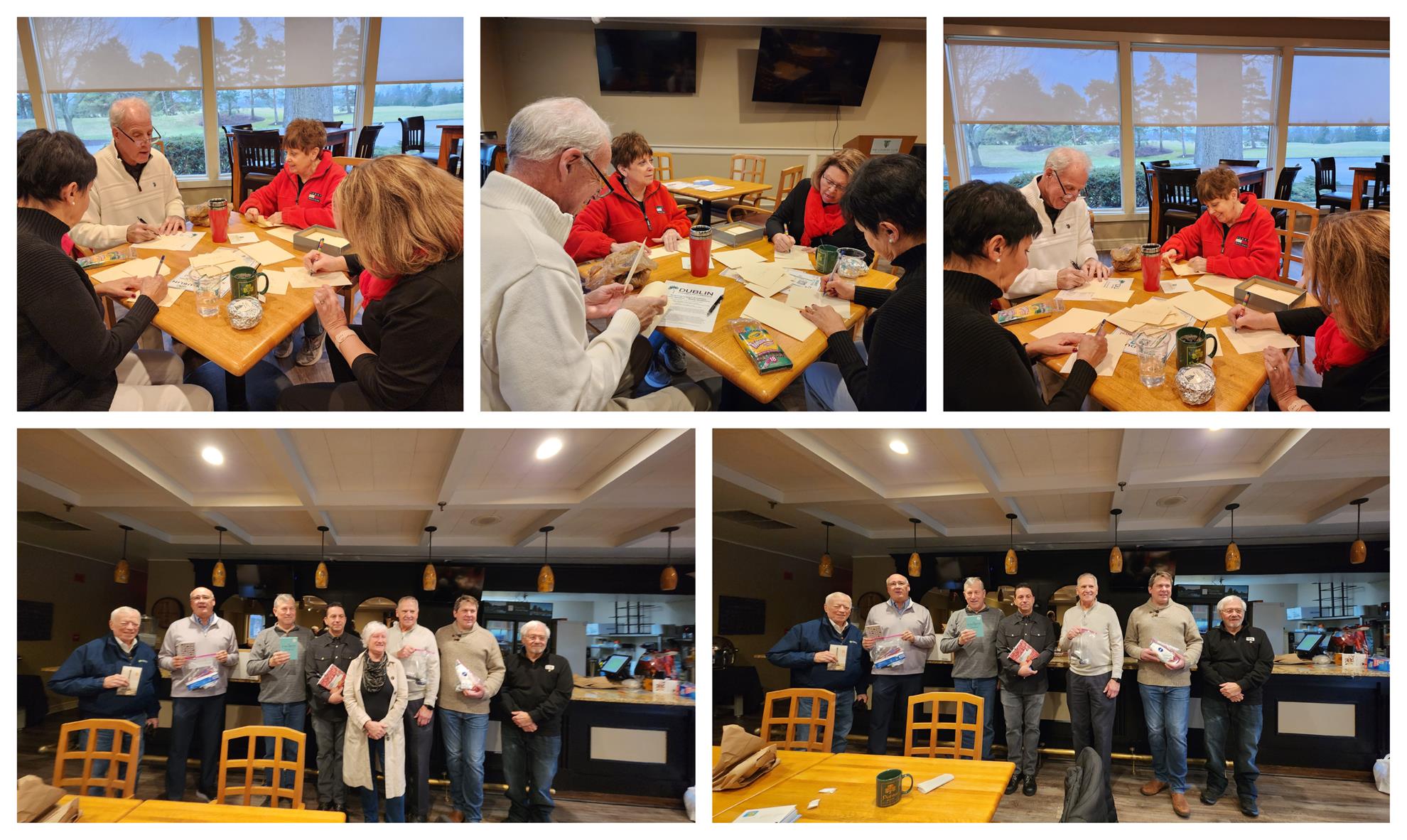 afe, Know Safe, Stay Safe” campaign. You can access the social media posts at https://www.
afe, Know Safe, Stay Safe” campaign. You can access the social media posts at https://www.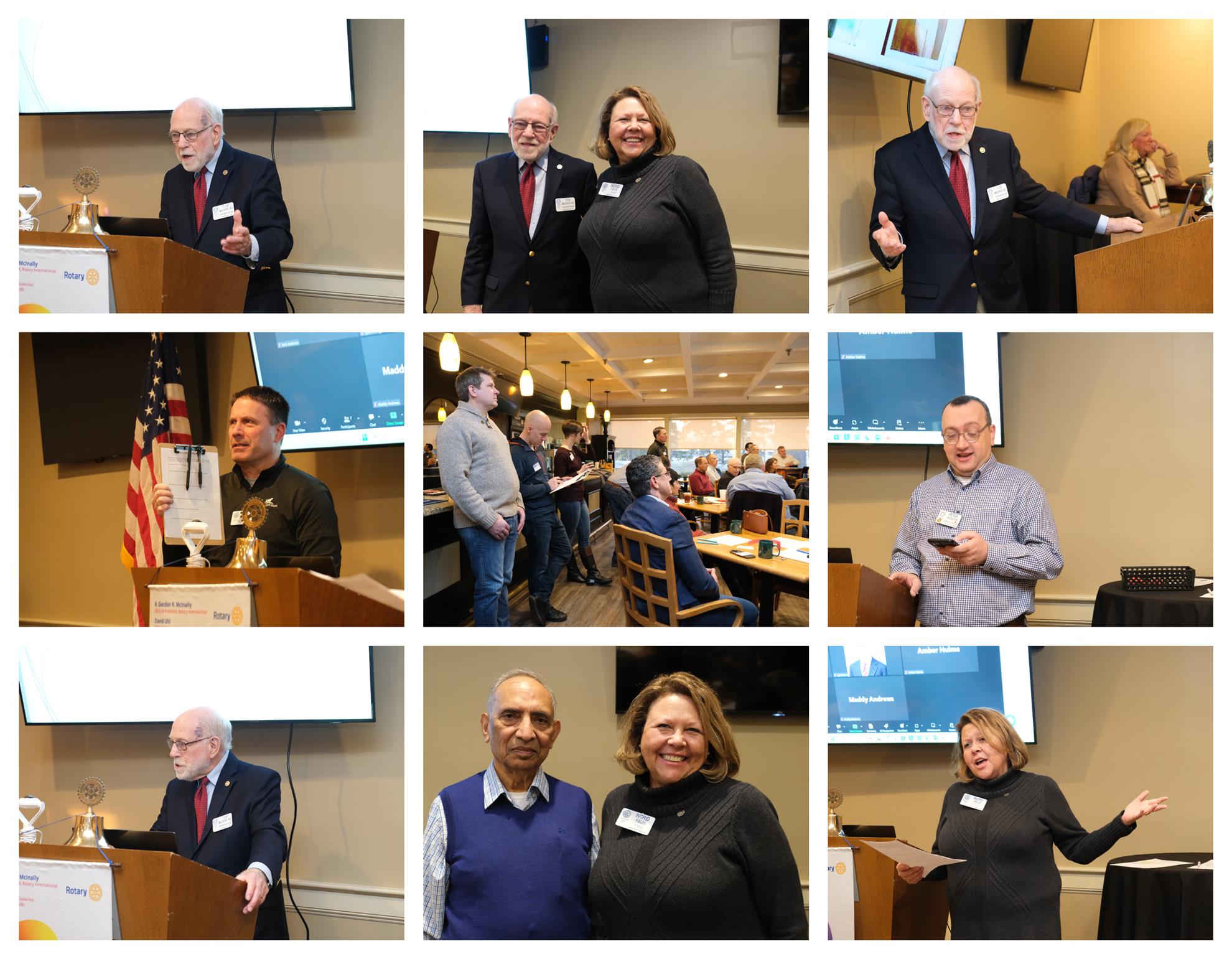 We were pleased to hear from our club member Dr. Tom McGloshen addressing life transitions.
We were pleased to hear from our club member Dr. Tom McGloshen addressing life transitions.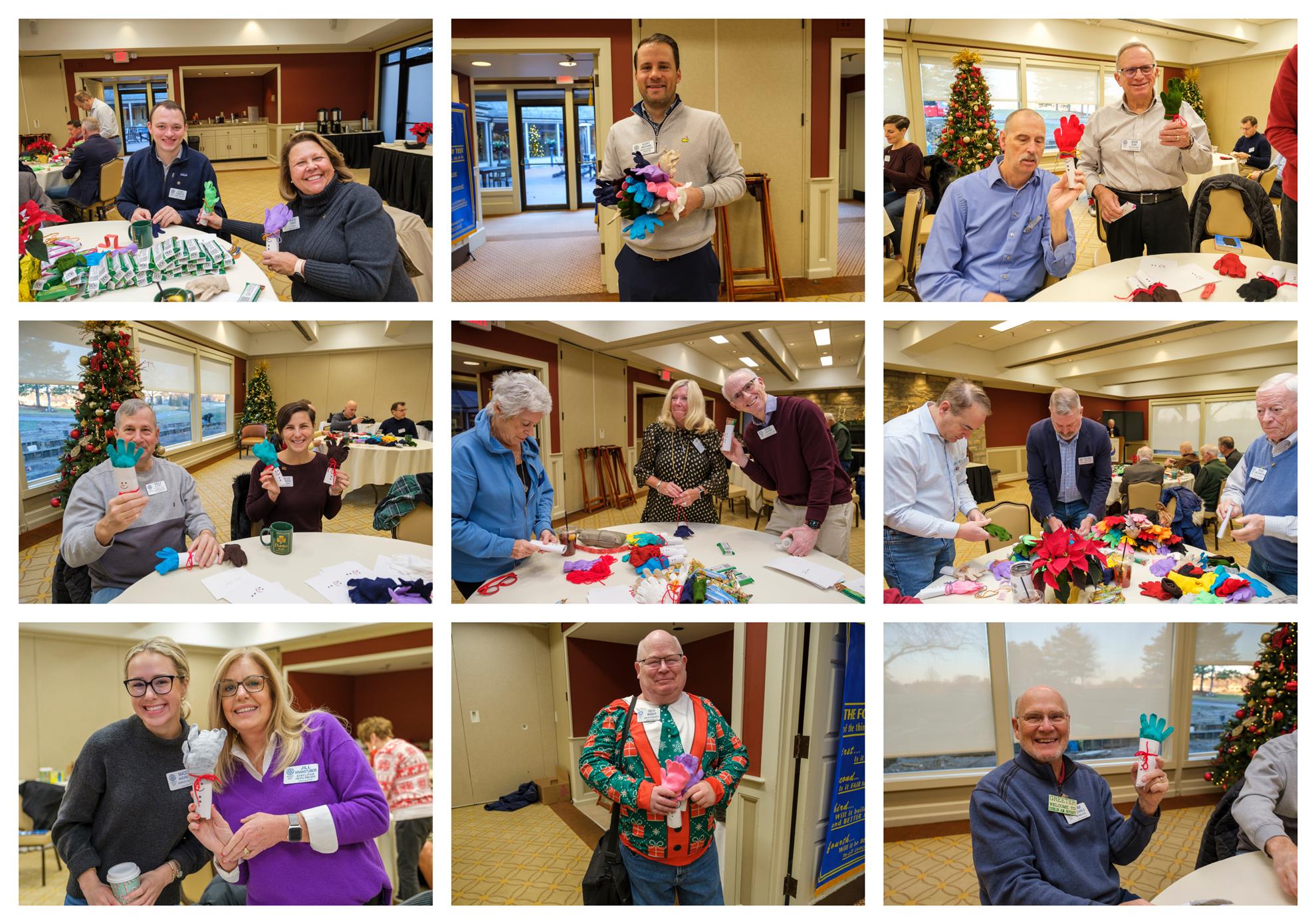 man Gloves“ for the kids of the Dublin Food Pantry. Scott from the Dublin Food Pantry was on hand to take the finished gloves in time to spread some extra holiday cheer to pantry clients. We appreciate everyone’s help, with a special thanks to Claudia Trusty, who ordered all the supplies!
man Gloves“ for the kids of the Dublin Food Pantry. Scott from the Dublin Food Pantry was on hand to take the finished gloves in time to spread some extra holiday cheer to pantry clients. We appreciate everyone’s help, with a special thanks to Claudia Trusty, who ordered all the supplies!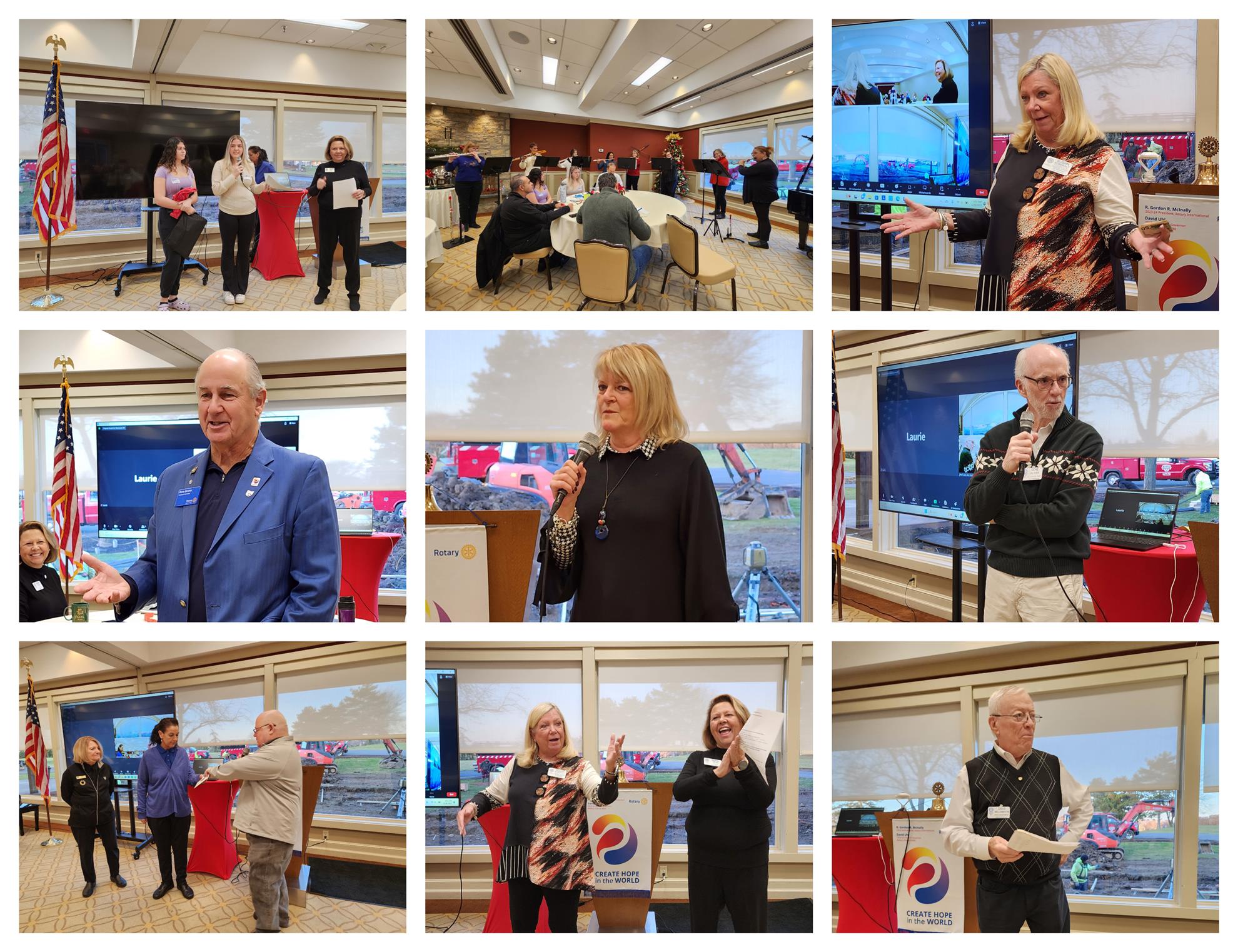
It was festive holiday-themed fellowship meeting. This joyful meeting was arranged thanks to Gene Oliver and Barb Anderson. They also arranged live music which was performed at the open and close of the meeting!
Julie Erwin Rinaldi led a special invocation followed by a gratitude exercise.
A moment of silence was observed in honor and memory of Daryl Schorsten. Members shared their memories of Daryl and how they knew him, some going back to high school.
More photos are on our Flickr website
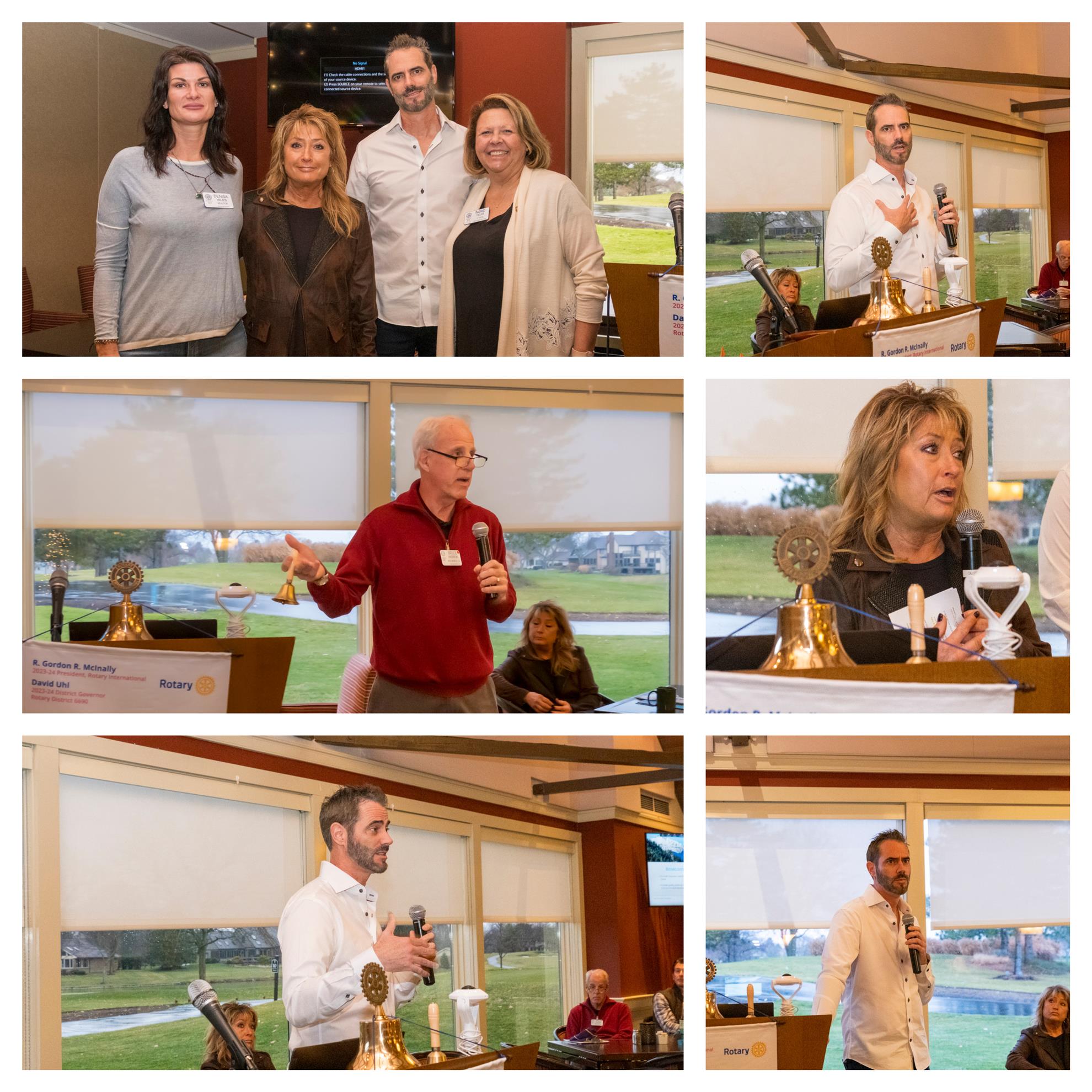 Thanks to our meeting speakers Lili C Reitz, Esq. and Rob Graessle, DO, for discussing Fund The Climb Foundation. The mission of Fund The Climb Foundation is to remove barriers that stand in the way of patients seeking treatment for the brain disease of addiction.
Thanks to our meeting speakers Lili C Reitz, Esq. and Rob Graessle, DO, for discussing Fund The Climb Foundation. The mission of Fund The Climb Foundation is to remove barriers that stand in the way of patients seeking treatment for the brain disease of addiction. Lili C Reitz, Esq., a licensed attorney and executive director of Fund The Climb Foundation. She worked at the Attorney General’s Office for 5 years, and as an agency director for the state of Ohio for 20 years. Ms. Reitz served as the compliance officer for an addiction treatment facility prior to her current position.
Our 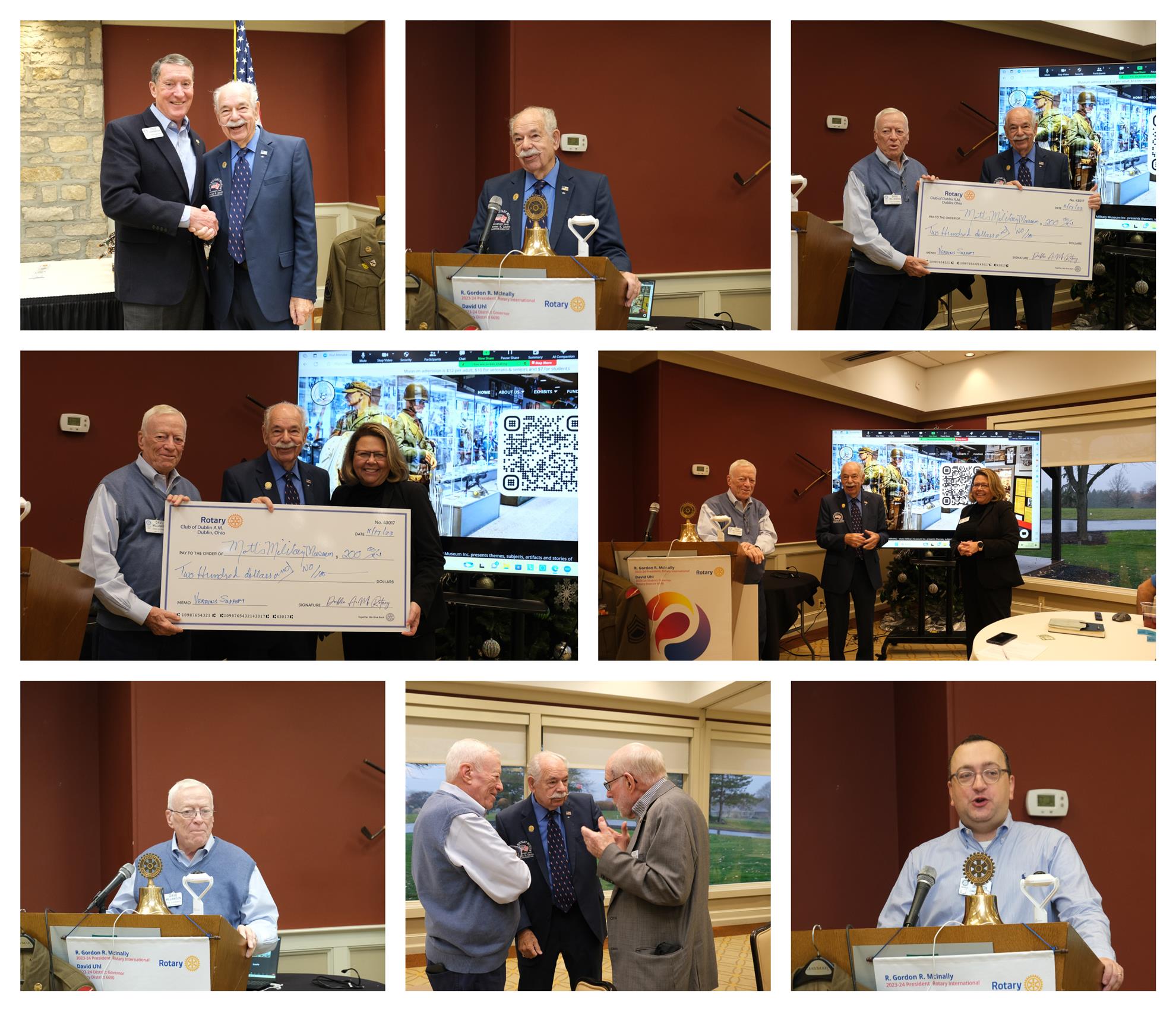 meeting speaker was Warren Motts, Founder and Chief Curator of Motts Military Museum in Groveport. Warren E. Motts, a graduate of Groveport-Madison High School, joined the Ohio National Guard at the age of eighteen. He received basic training at Fort Knox, Kentucky. After his training he was sent to Ft. Monmouth, NJ where he was trained as a photographer. He was in the ONG for nine years obtaining the rank of Staff Sgt. in charge of the Photographic Section, HQ & HQ, 37th Infantry Division.
meeting speaker was Warren Motts, Founder and Chief Curator of Motts Military Museum in Groveport. Warren E. Motts, a graduate of Groveport-Madison High School, joined the Ohio National Guard at the age of eighteen. He received basic training at Fort Knox, Kentucky. After his training he was sent to Ft. Monmouth, NJ where he was trained as a photographer. He was in the ONG for nine years obtaining the rank of Staff Sgt. in charge of the Photographic Section, HQ & HQ, 37th Infantry Division.
He also obtained a job in the photographic department at Battelle Memorial Institute in Columbus, Ohio, receiving a secret and top secret security clearance working on government projects. At Battelle he met Daisy Blair and they were married. They have two children Wayne and Lori, three grandchildren Brittney, Taylor, and Lexi. He was the owner of Motts Photographic Center, Inc. for 25 years. He is past president of The Professional Photographers of Ohio, The American Society of Professional Photographers, and The Professional Photographers of America and has many degrees and awards from these organizations. He founded Motts Military Museum Inc. in his home in 1988 and moved to the present location in 1999, where the museum continues to thrive and expand.
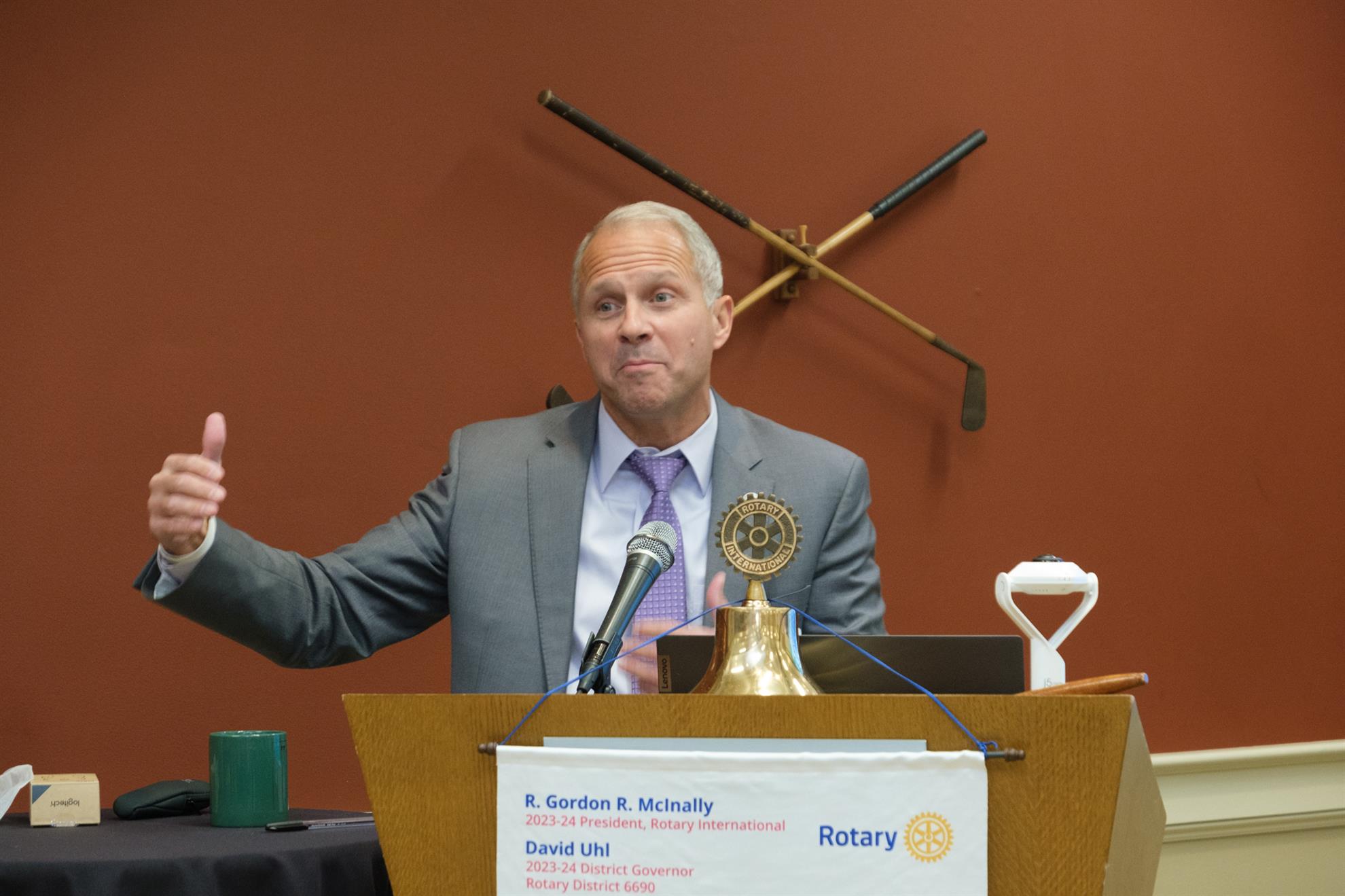 Thanks to our very own club member Dr. John Marschhausen for enlightening us on current strategic plans for Dublin City Schools and the potential impact of a levy on the ballot next week.
Thanks to our very own club member Dr. John Marschhausen for enlightening us on current strategic plans for Dublin City Schools and the potential impact of a levy on the ballot next week.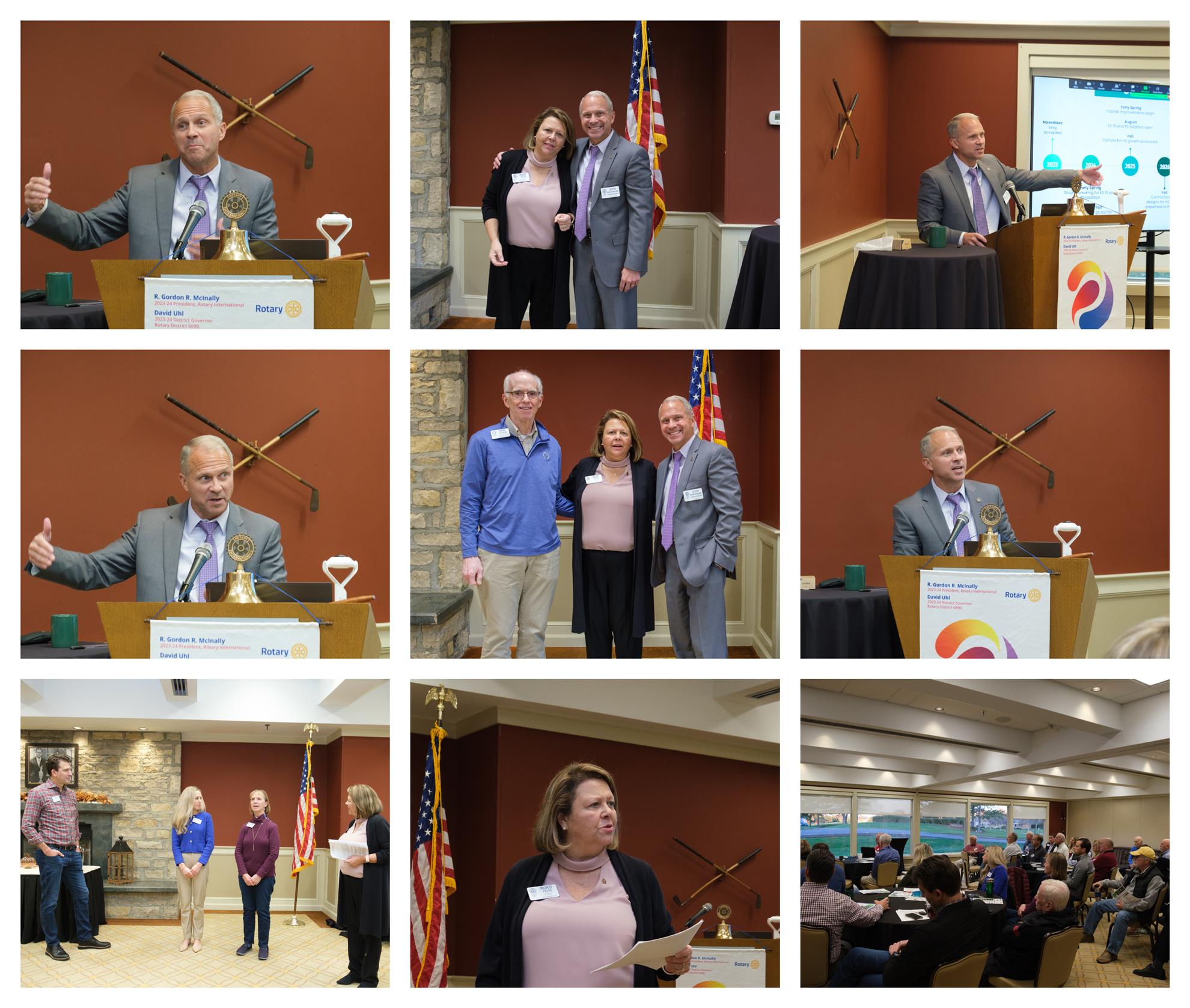
Michael Wilkos is Senior Vice President of Community Impact at United Way of Central Ohio. His team develops strategies to invest in and improve our community. Prior to his current role at United Way, Michael was Director of Community Research at The Columbus Foundation. During his tenure at the Foundation he initiated and managed competitive grant-making to support holistic community revitalization in the Weinland Park neighborhood. Throughout his career he has also led many initiatives to coordinate volunteers and funders in developing and implementing strategies supporting housing and community safety programs.
Michael earned a Bachelor of Arts degree in Geography and a Master of City and Regional Planning degree from The Ohio State University. He has served on many boards including: United Neighborhood Centers of America, Columbus Landmarks Foundation and Columbus Neighborhood Design Center.
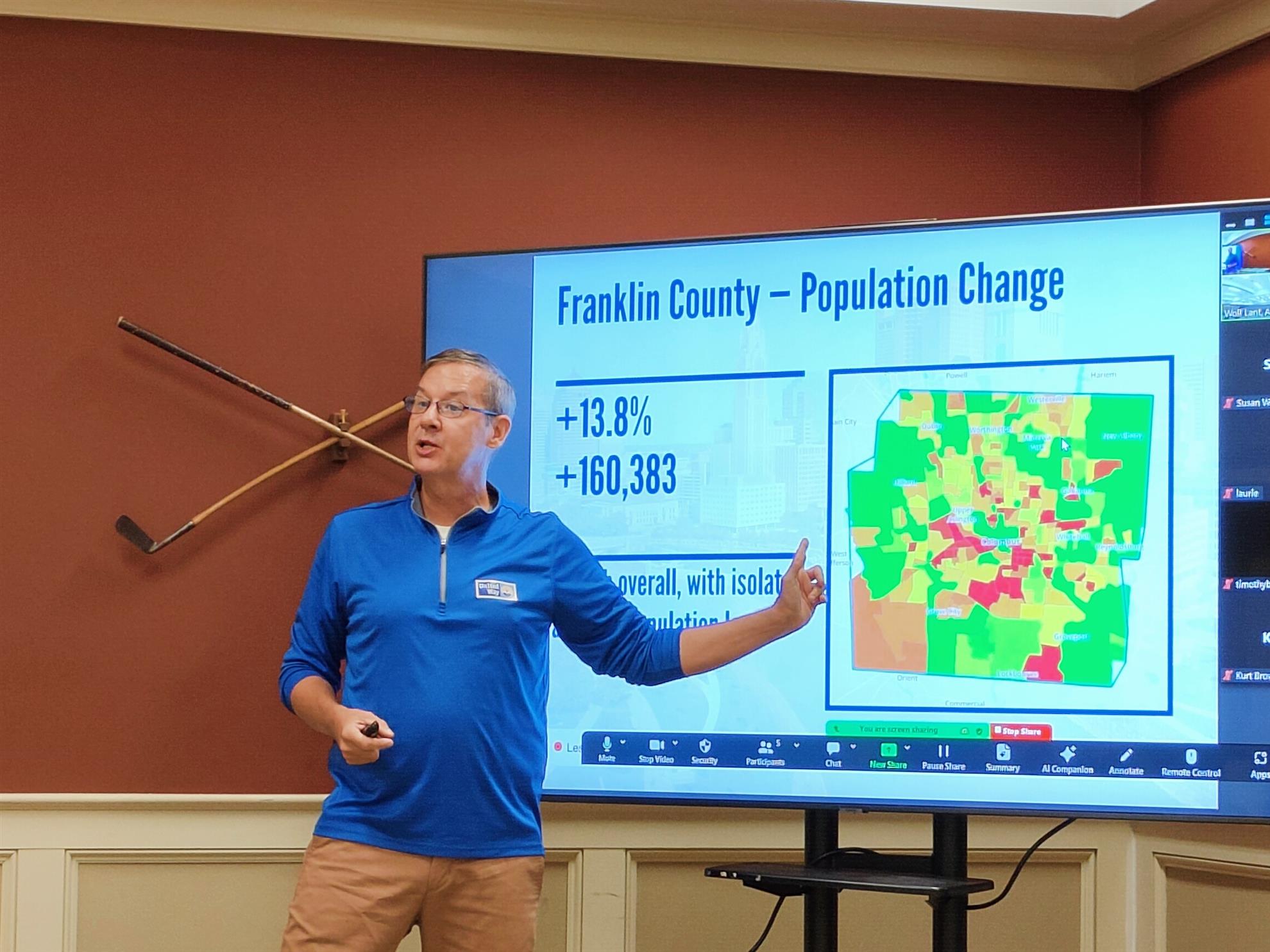
consortium of “C Level” executives, focused on building an active and creative network of senior leaders devoted to sharing best practices, leveraging their strengths and perspectives, and raising the level of digital and leadership “literacy” within their own organizations. He also continues to serve on multiple industry advisory boards and as an executive coach and advisor to a number of noted senior executives. He also serves as an Executive Consultant for Business Development Specialists Inc. (BDS), based out of Phoenix AZ. BDS is an innovative firm providing trusted solutions to clients seeking greater levels of business success.
Mr. Barnes has over forty years of experience as a senior executive in the technology arena, including multiple influential CIO leadership roles up to and including the Fortune 100 level. He has a multi-industry background, and has received numerous industry accolades, including having been once recognized as one of this country’s most noted CIOs. A former officer in the United States Army, Mr. Barnes remains a frequent, visible and familiar voice at national industry events and in major industry publications.
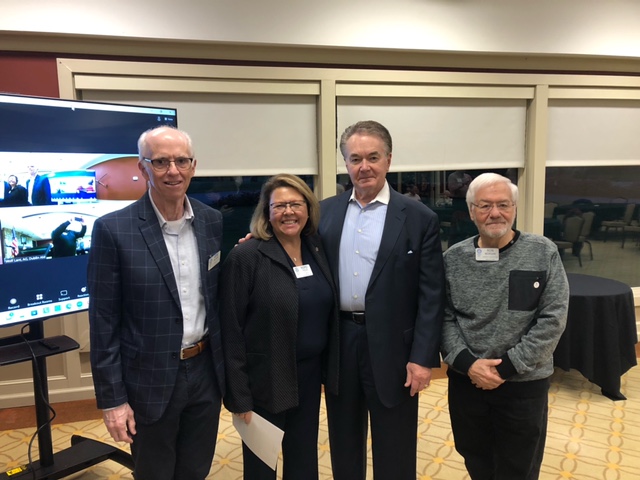
.png)













